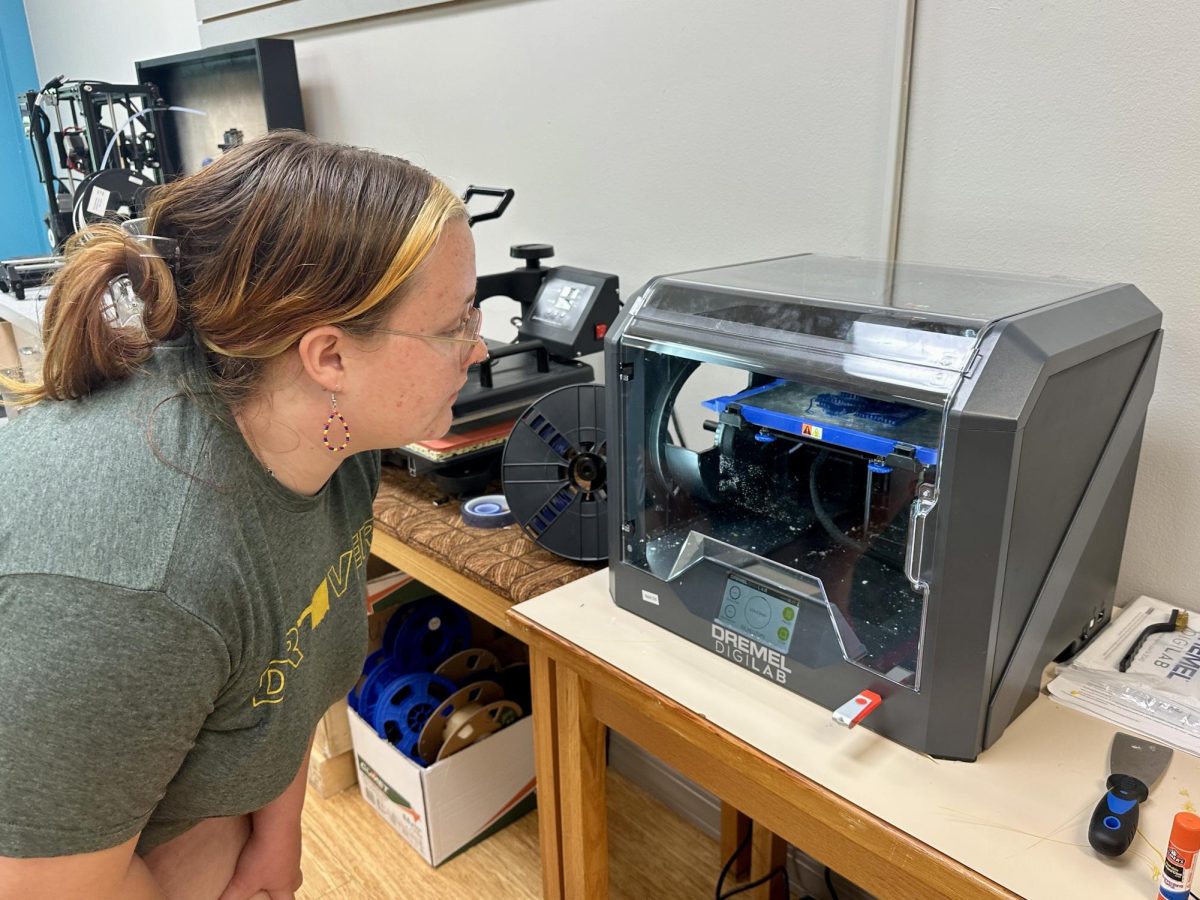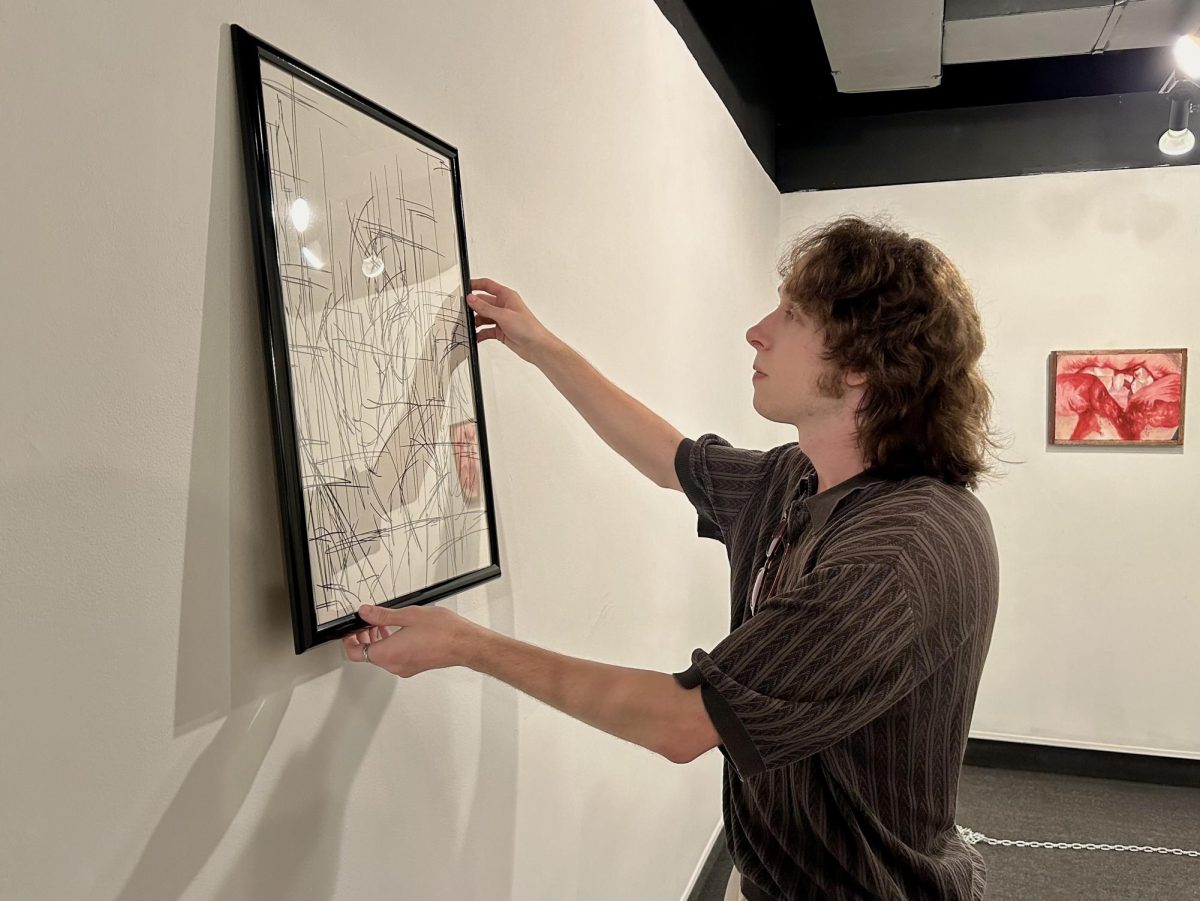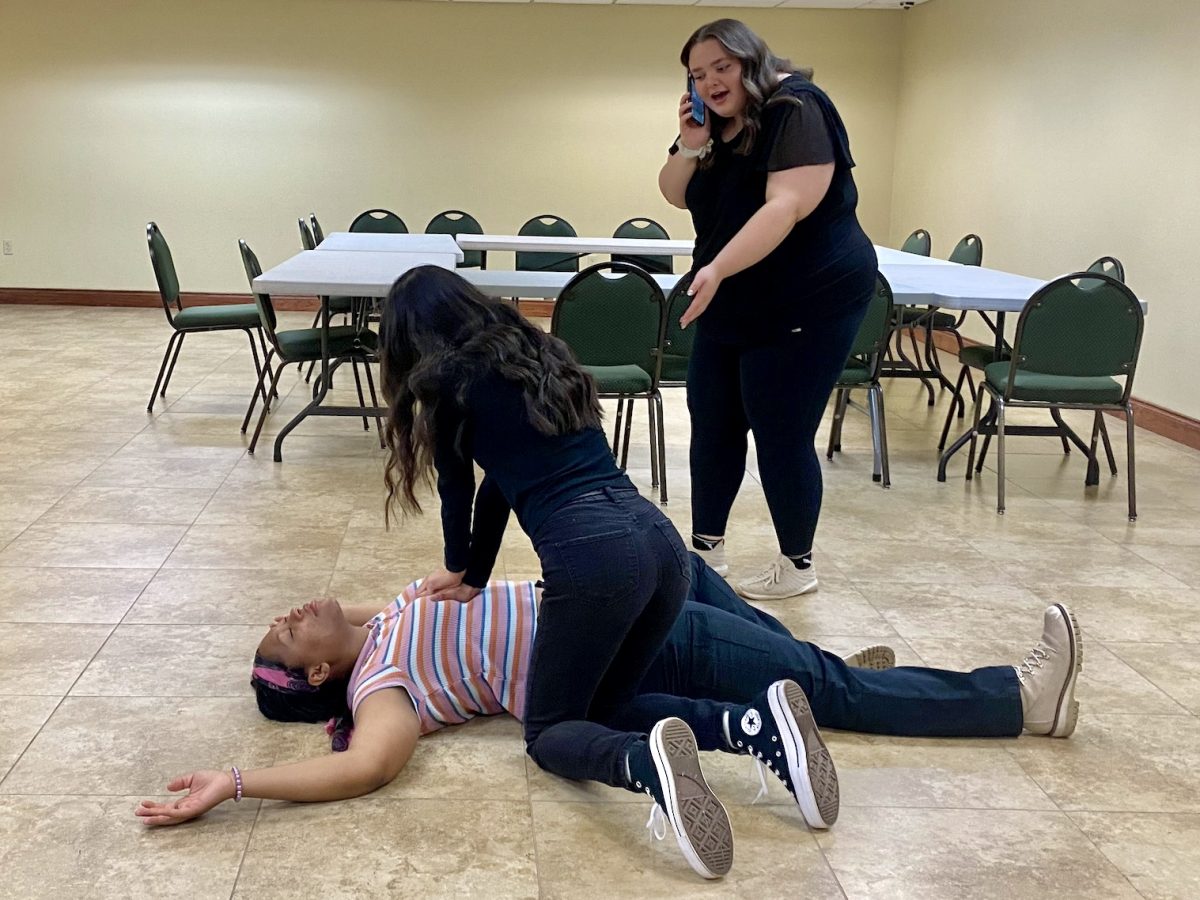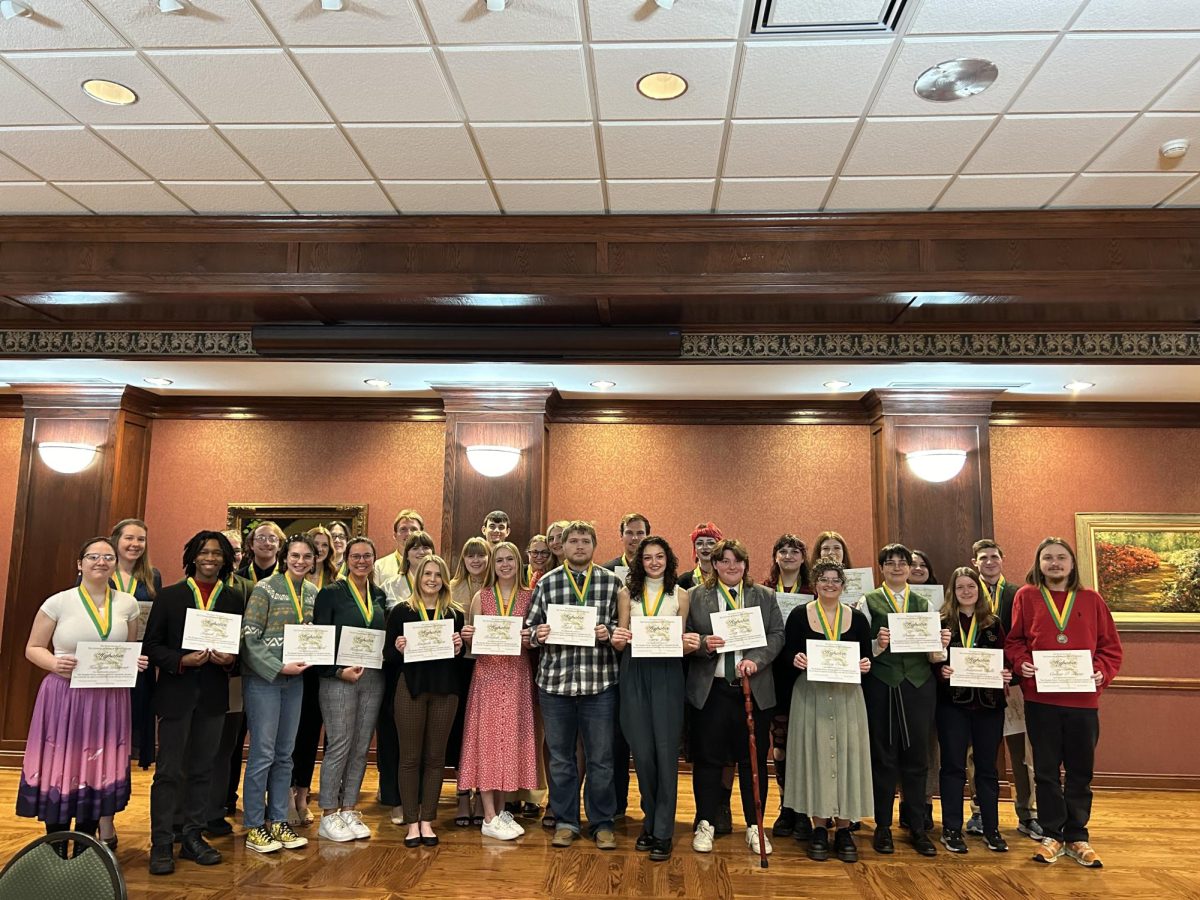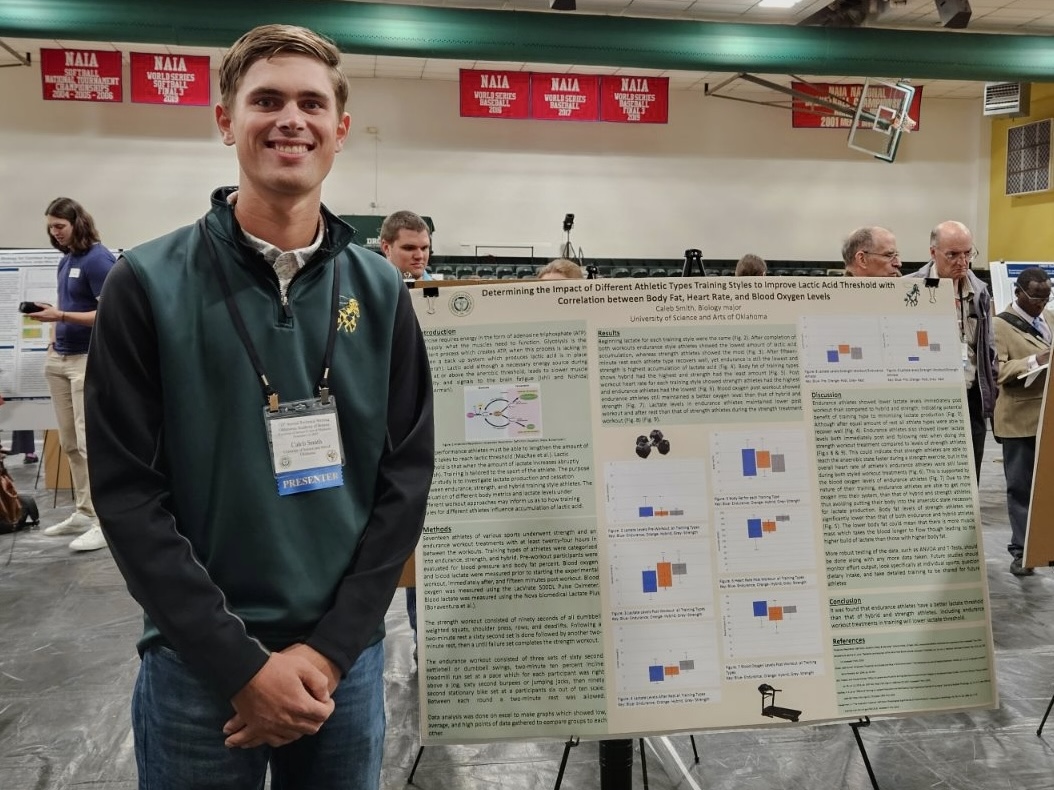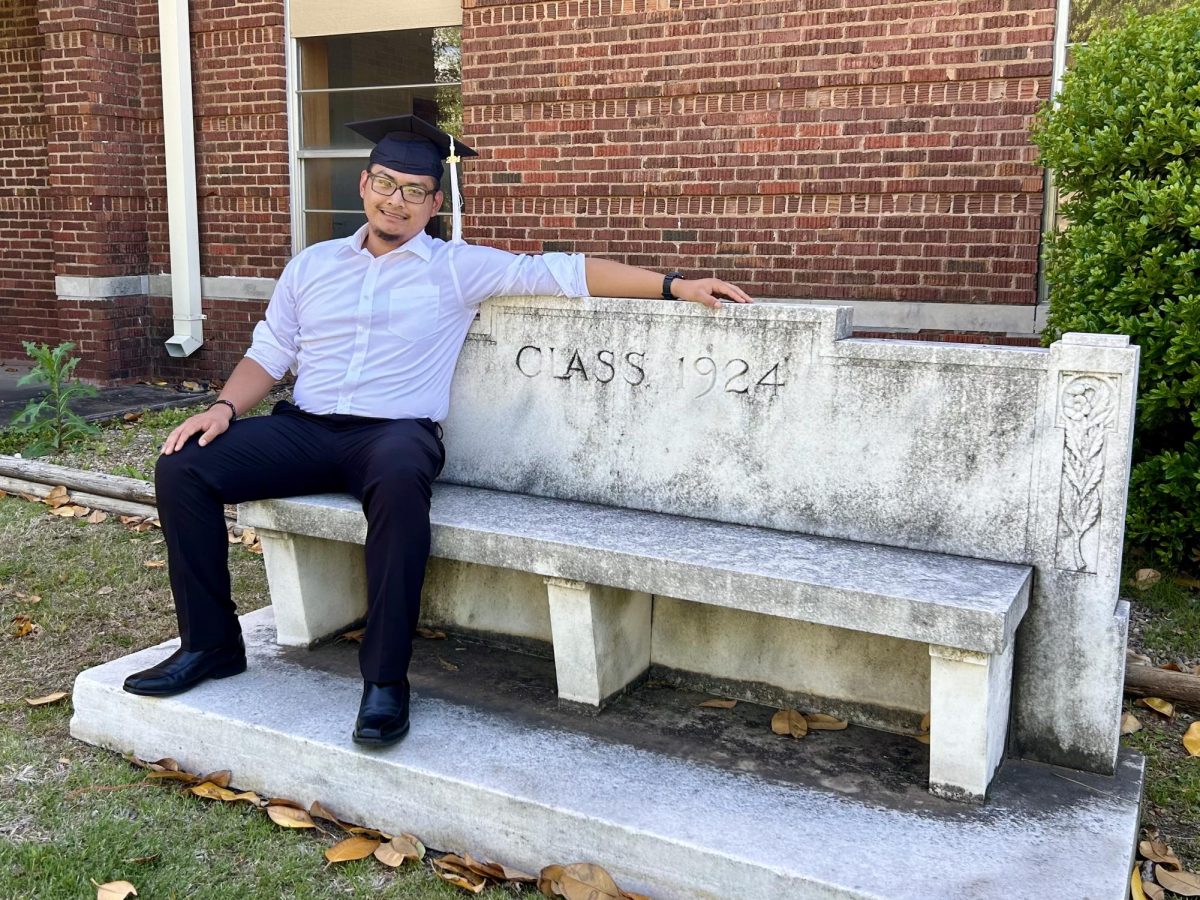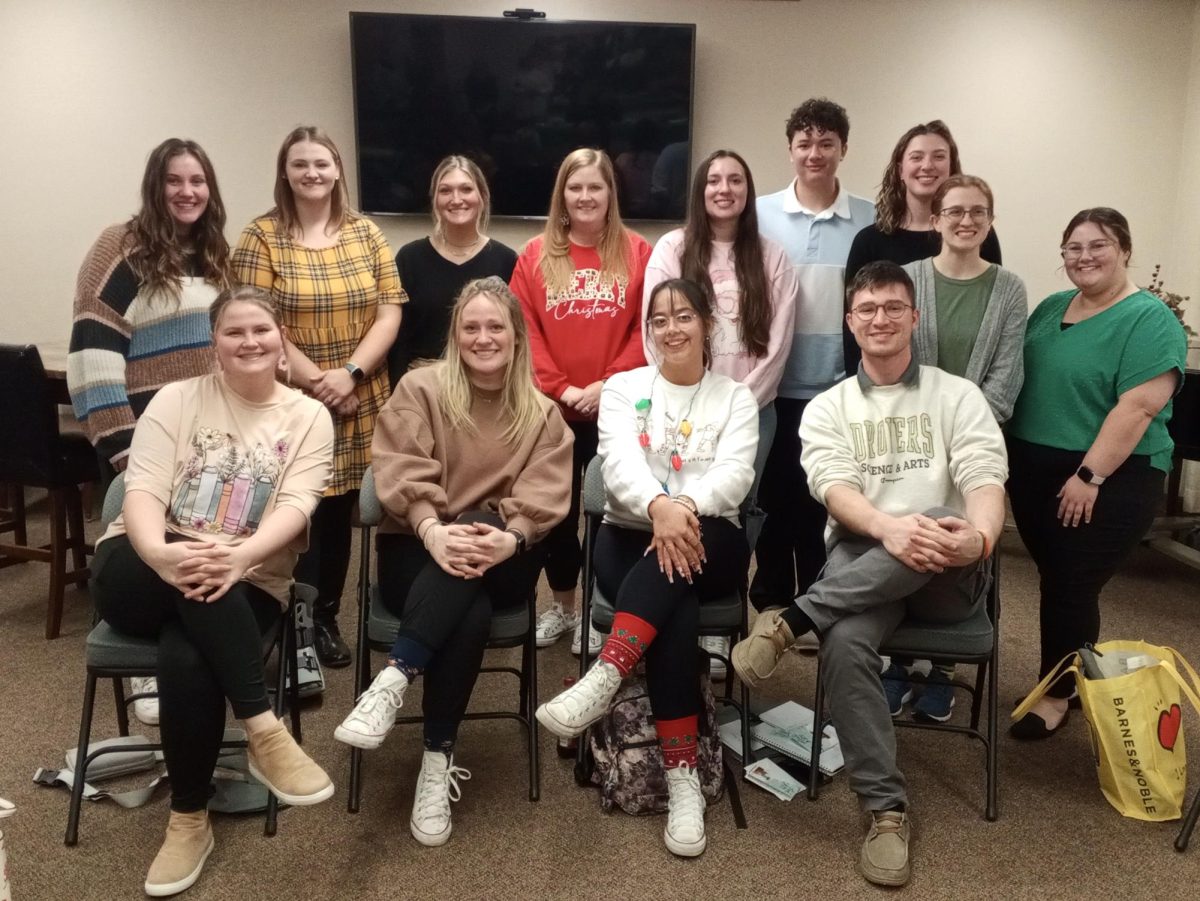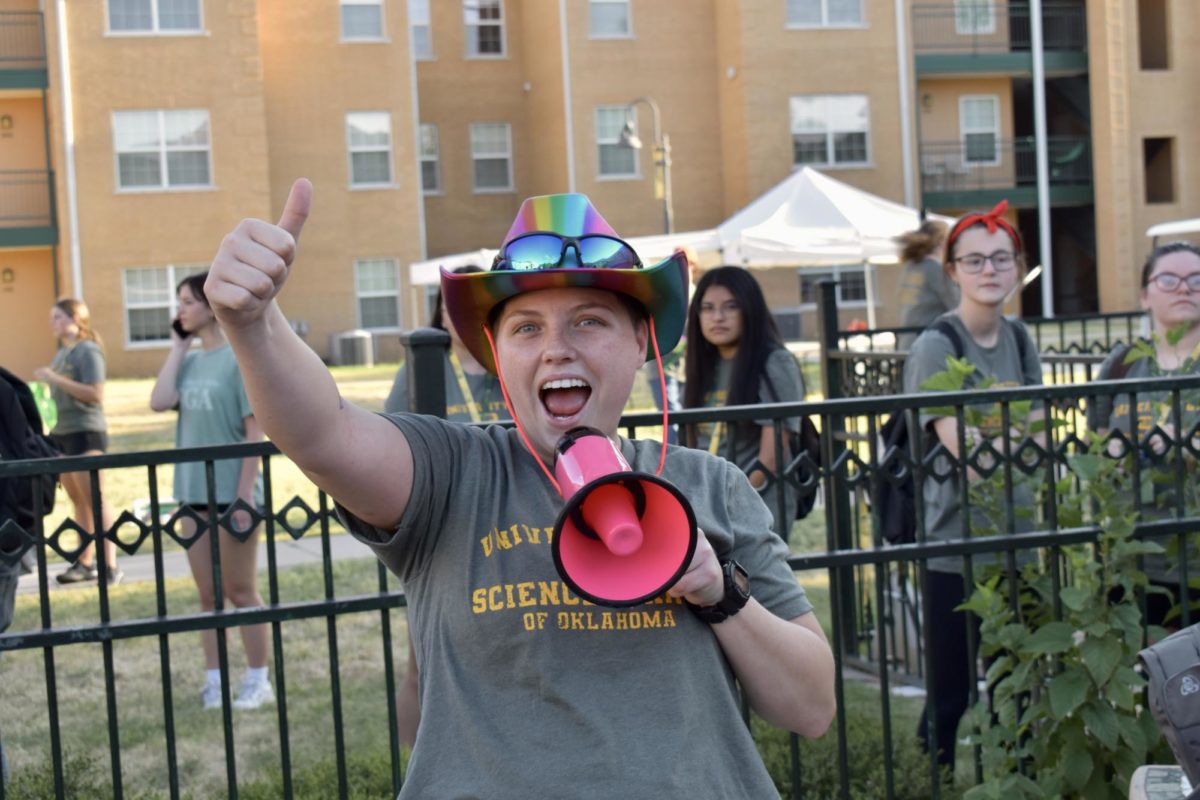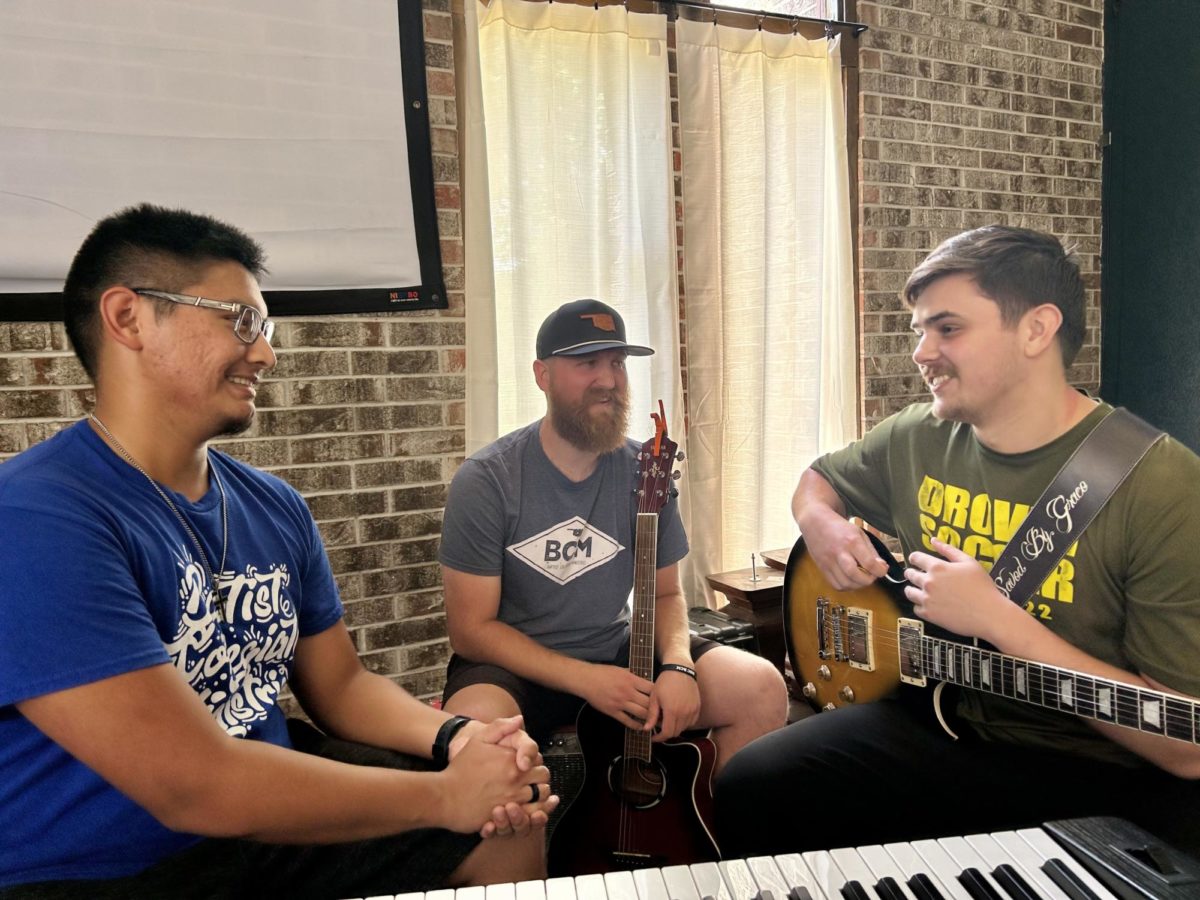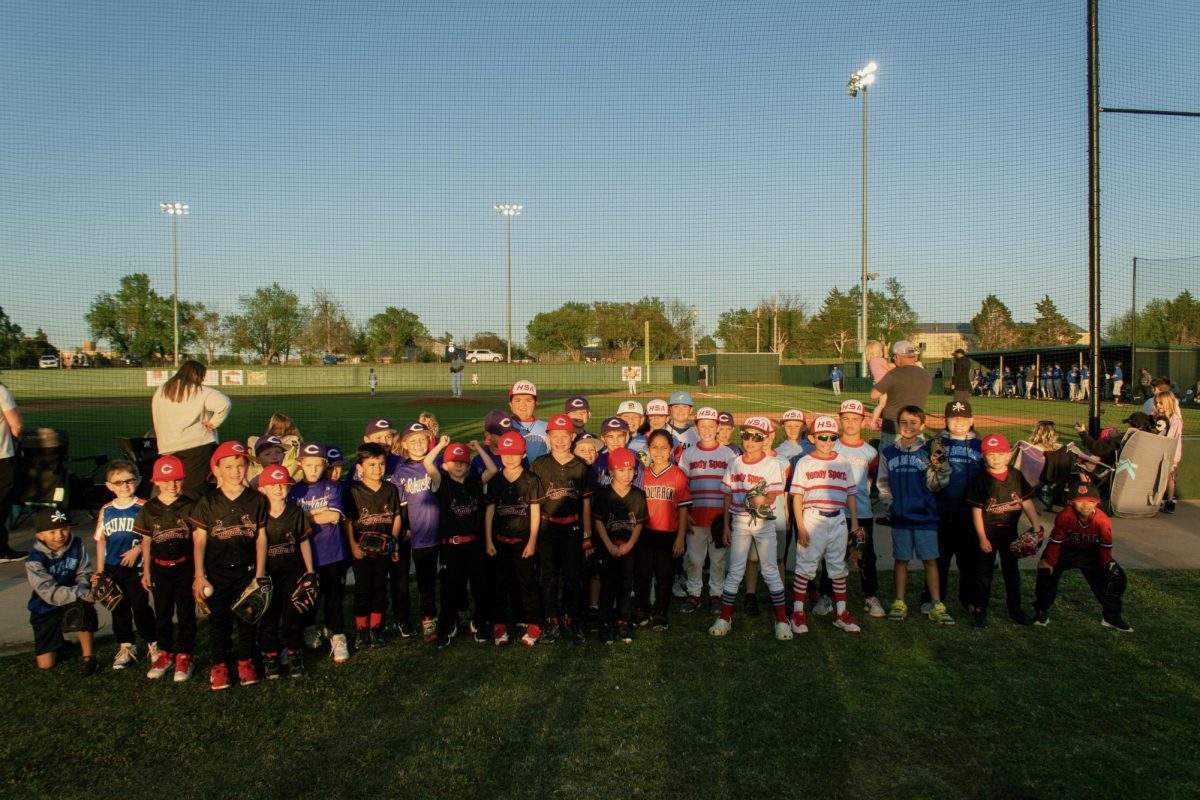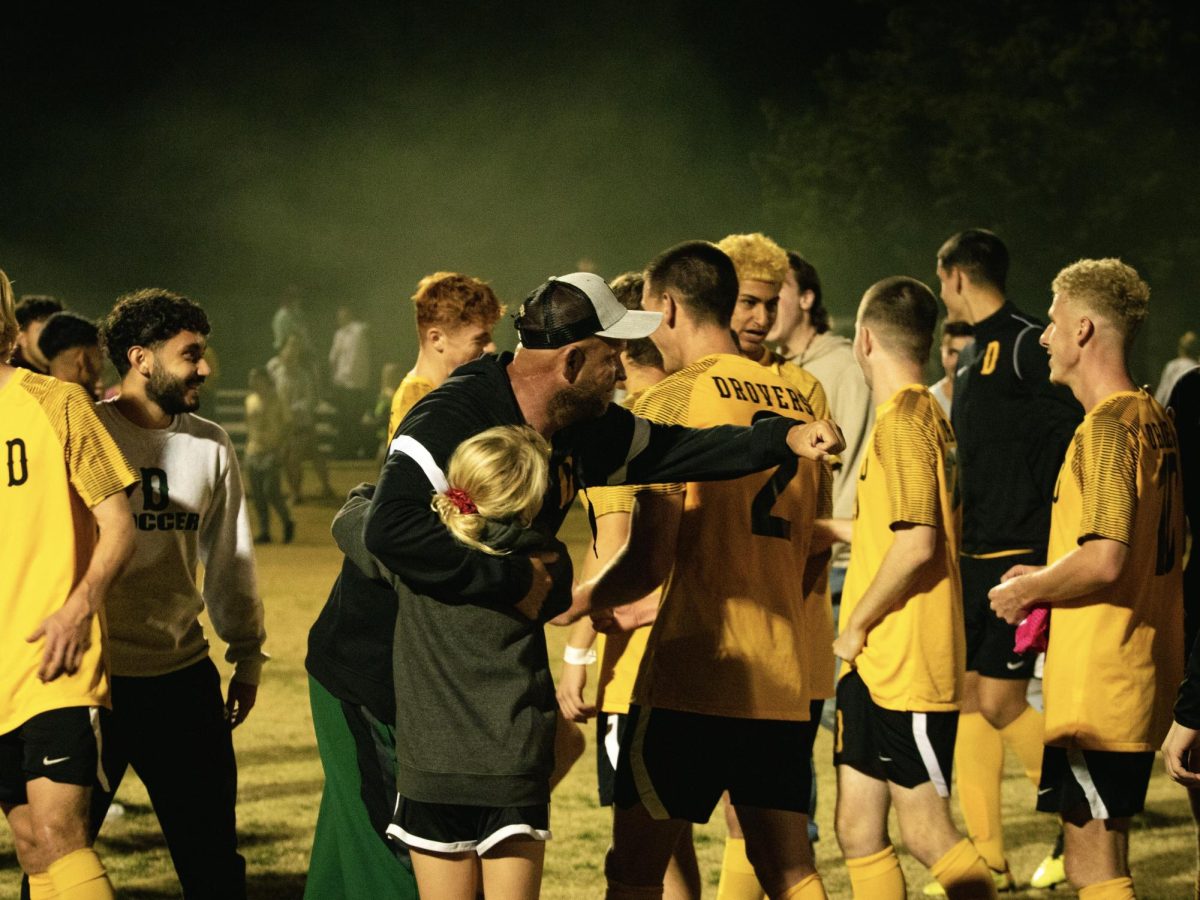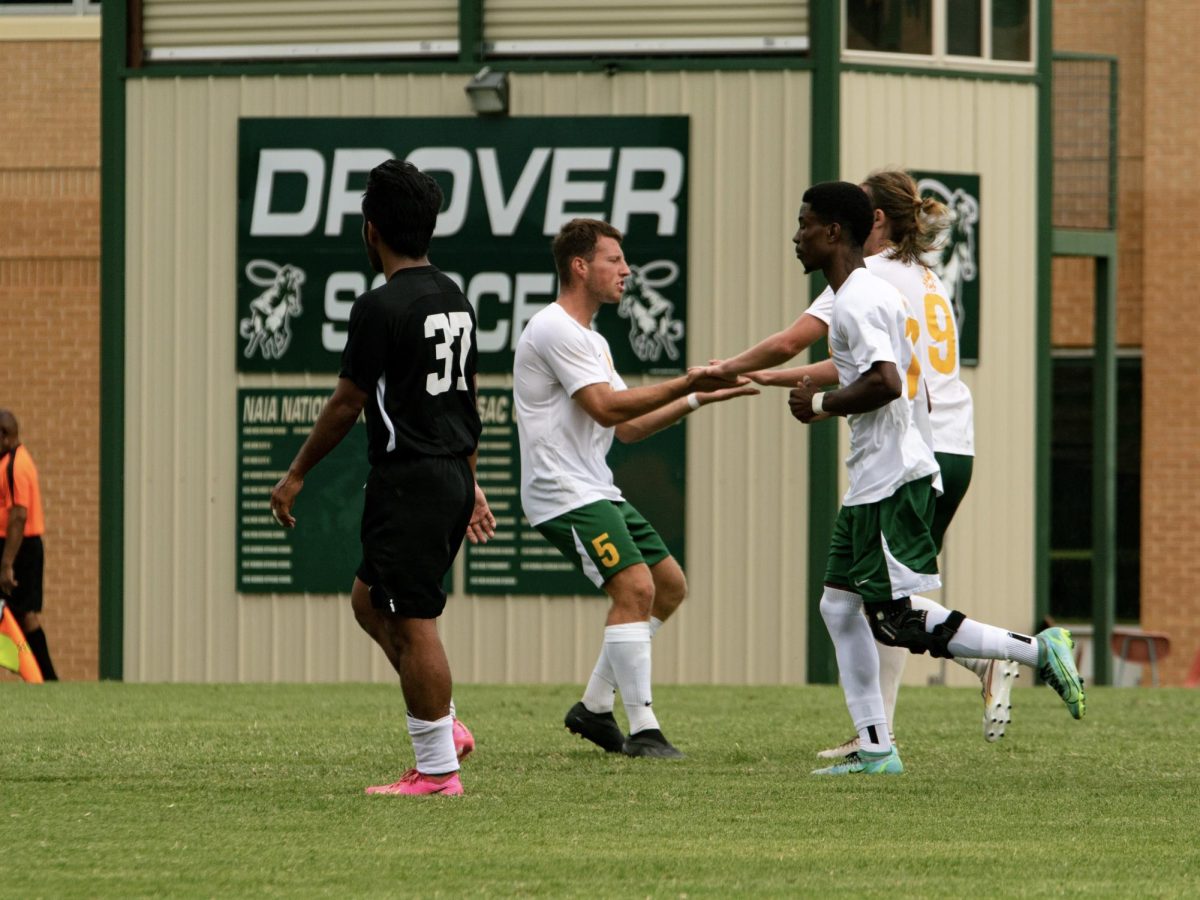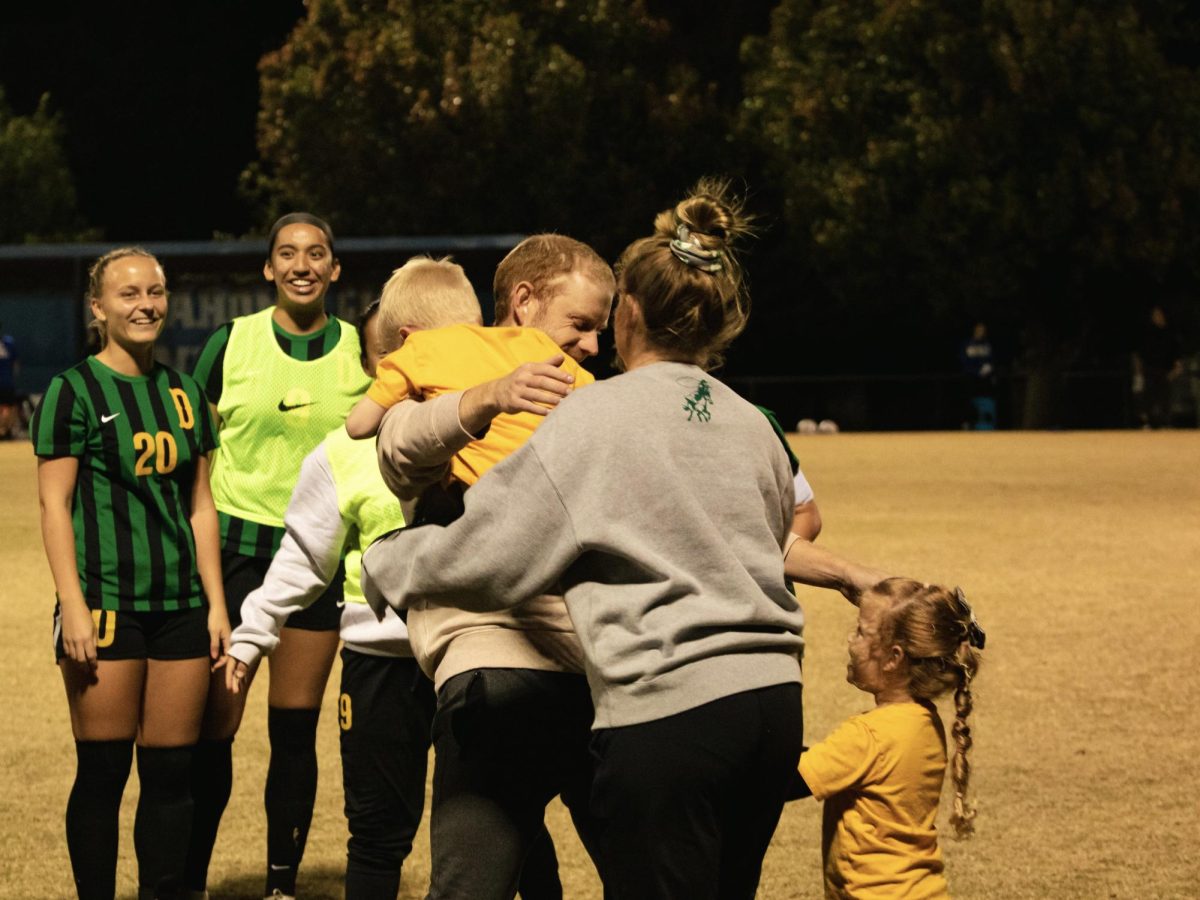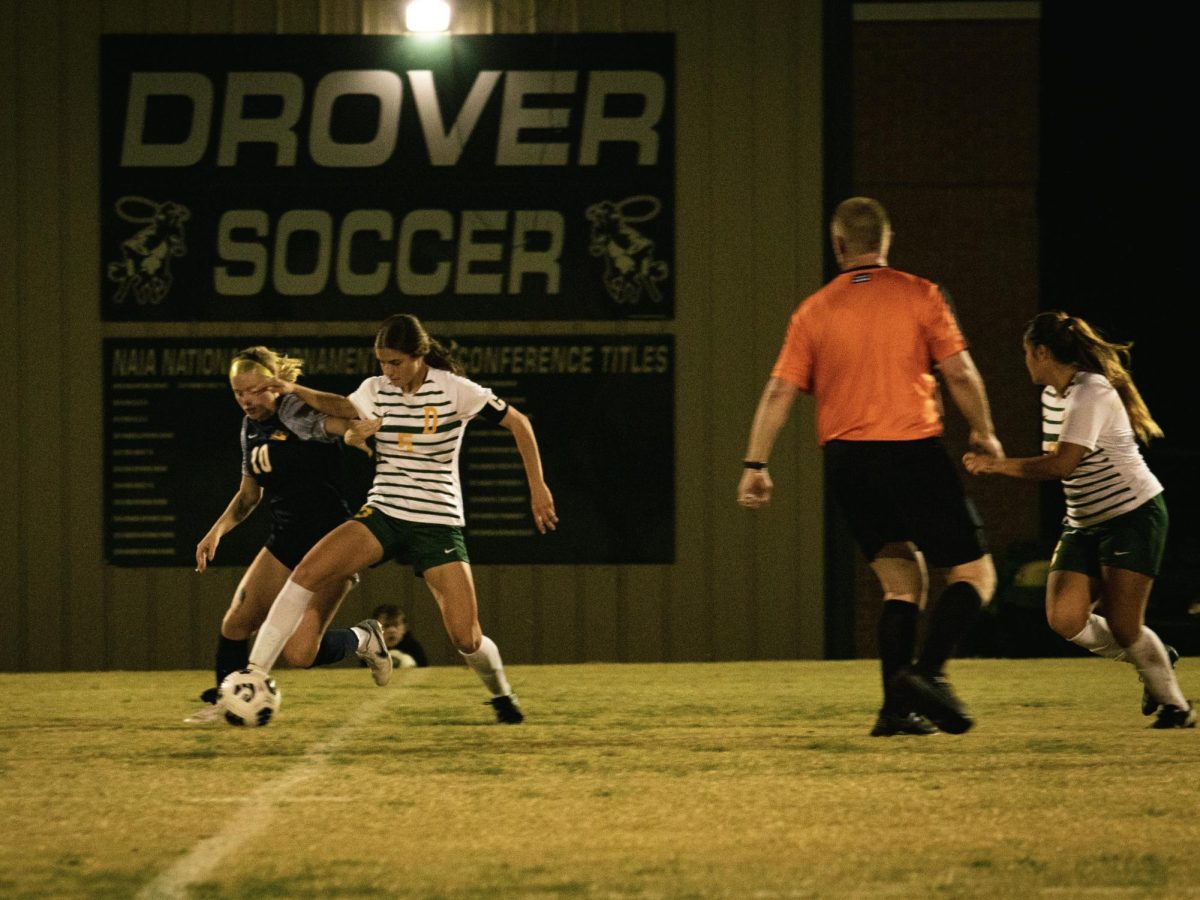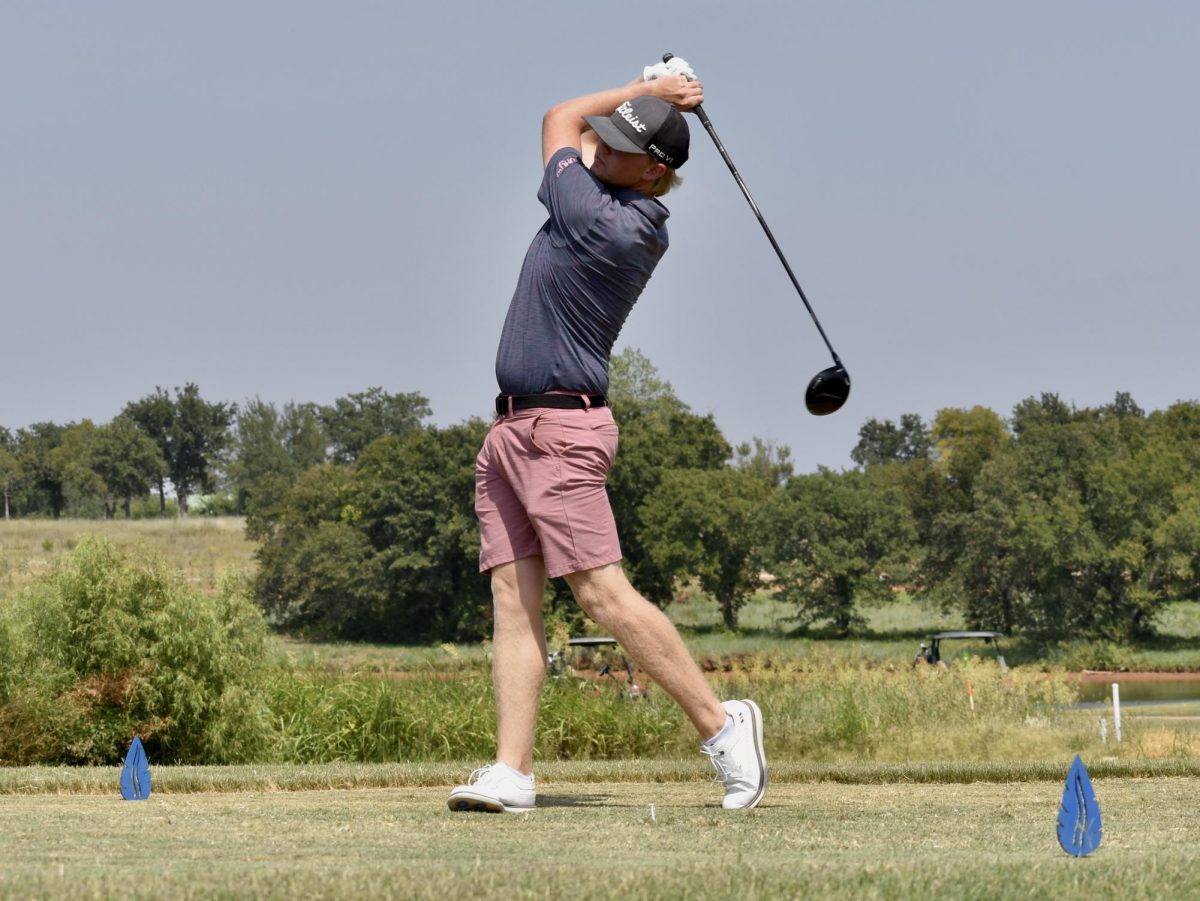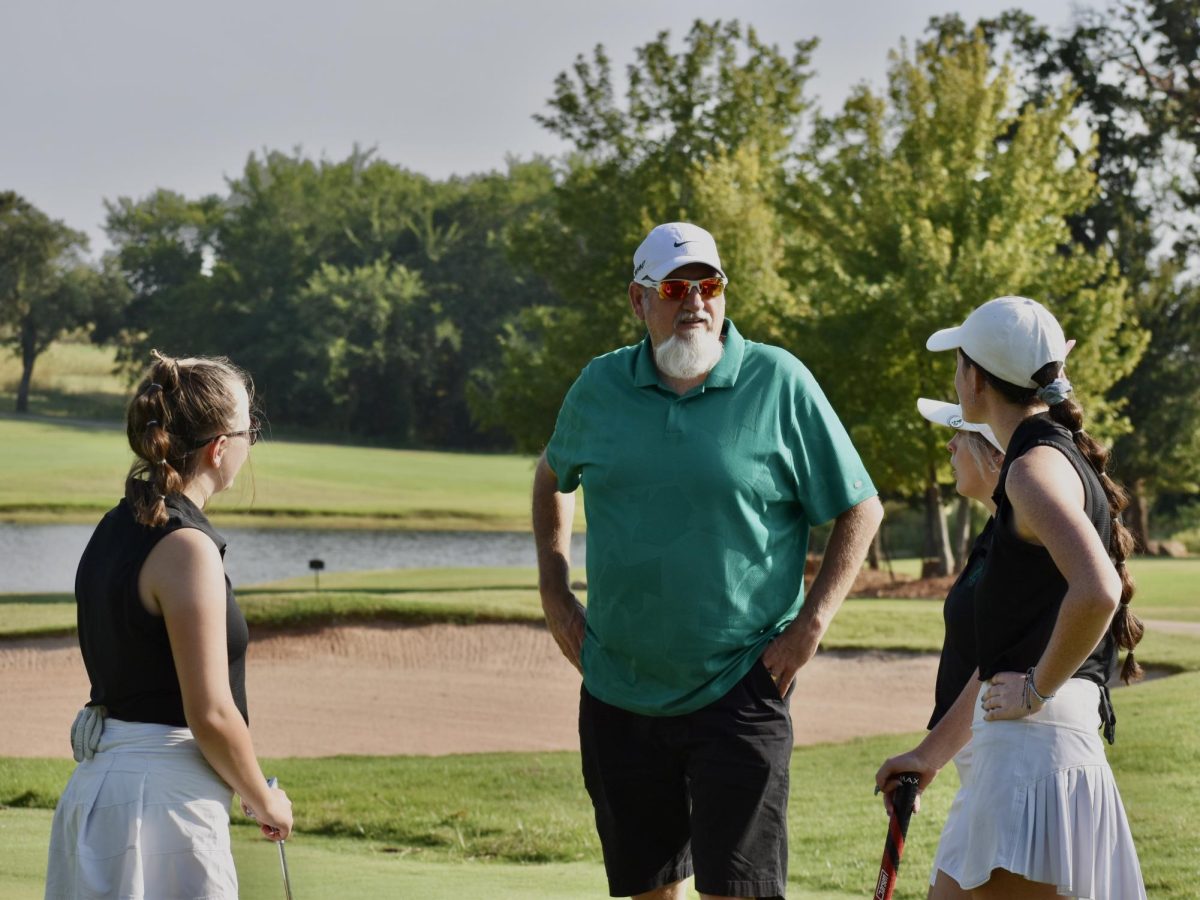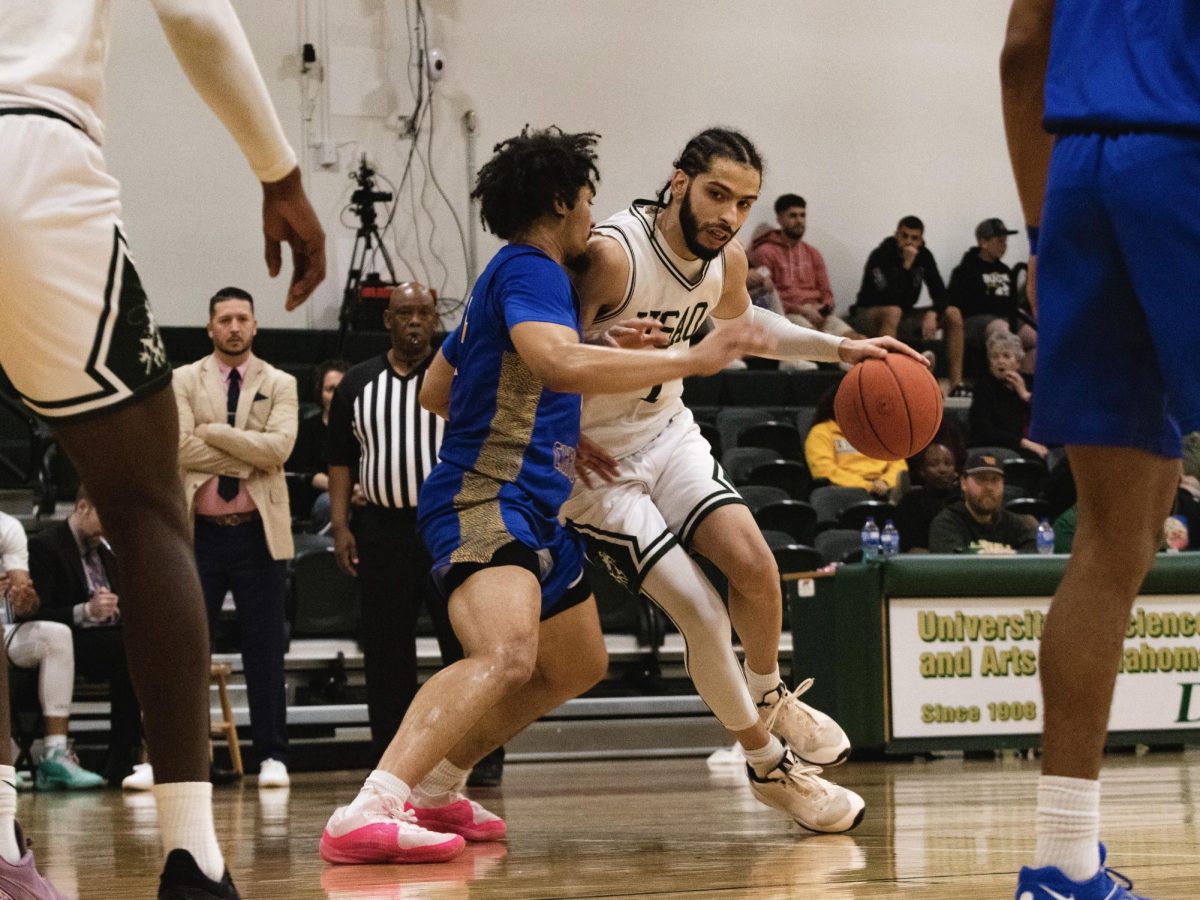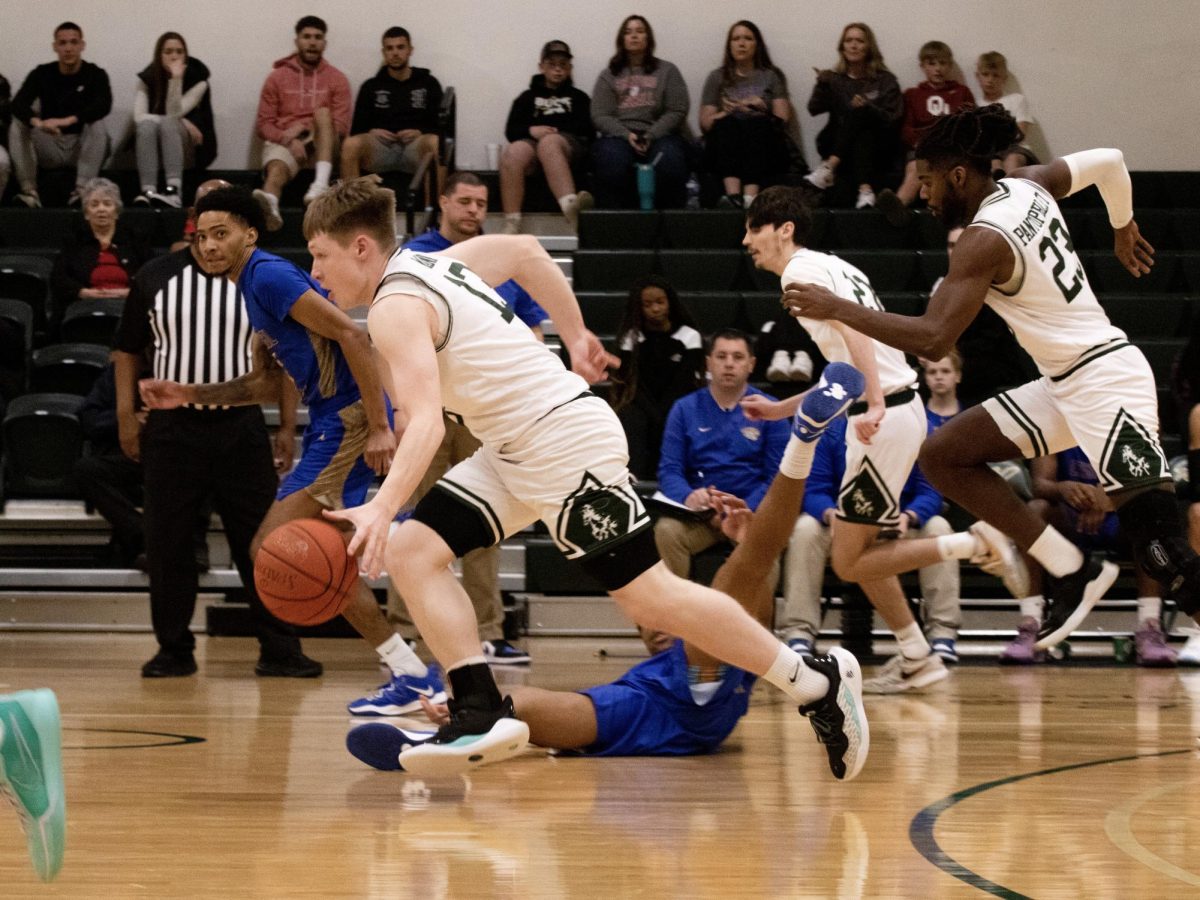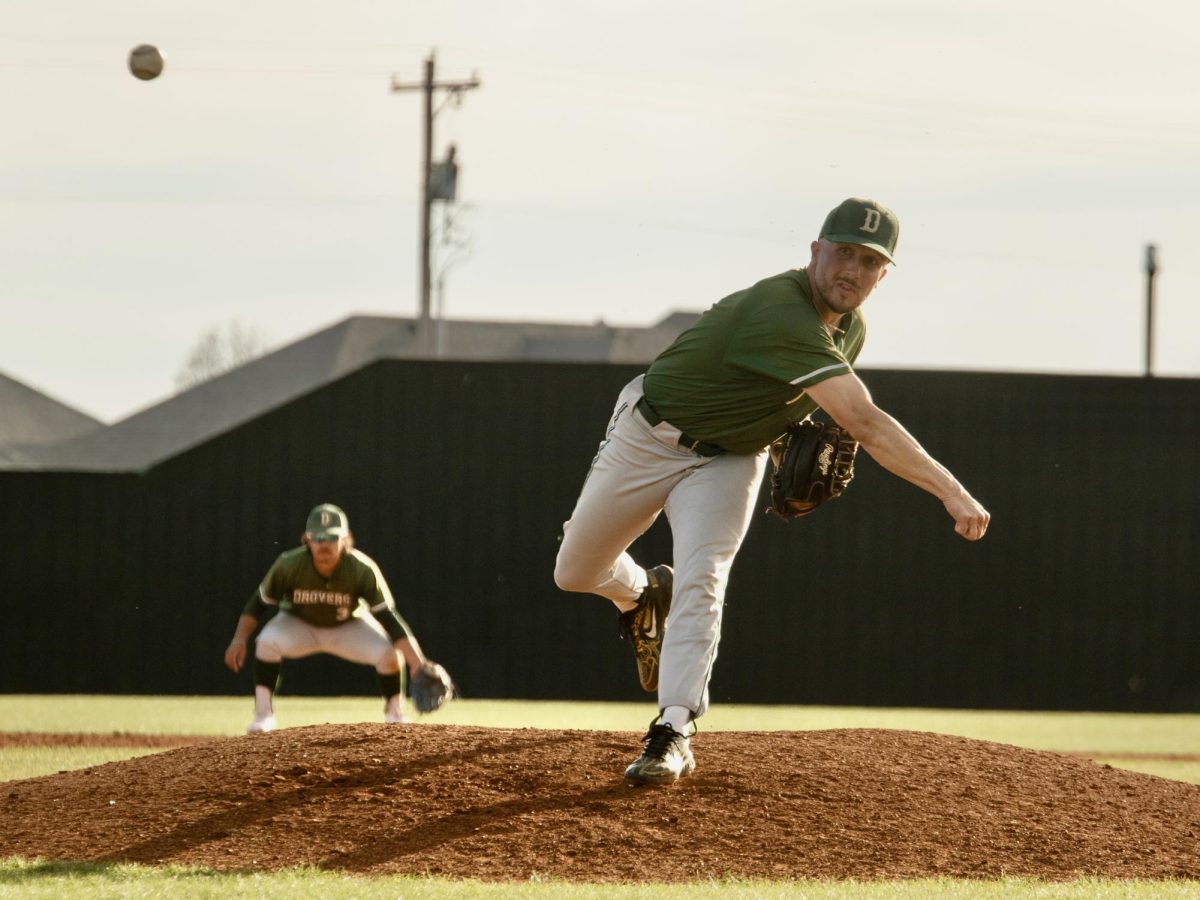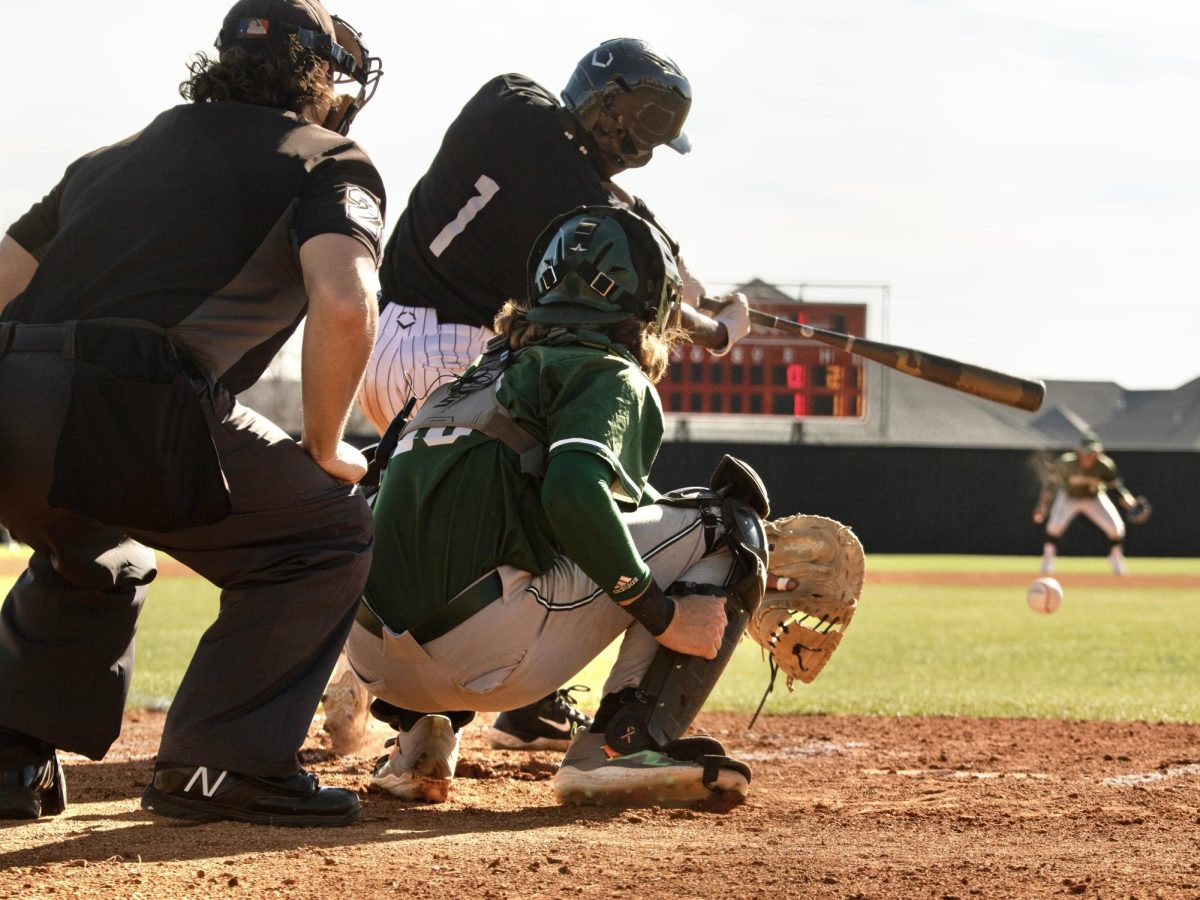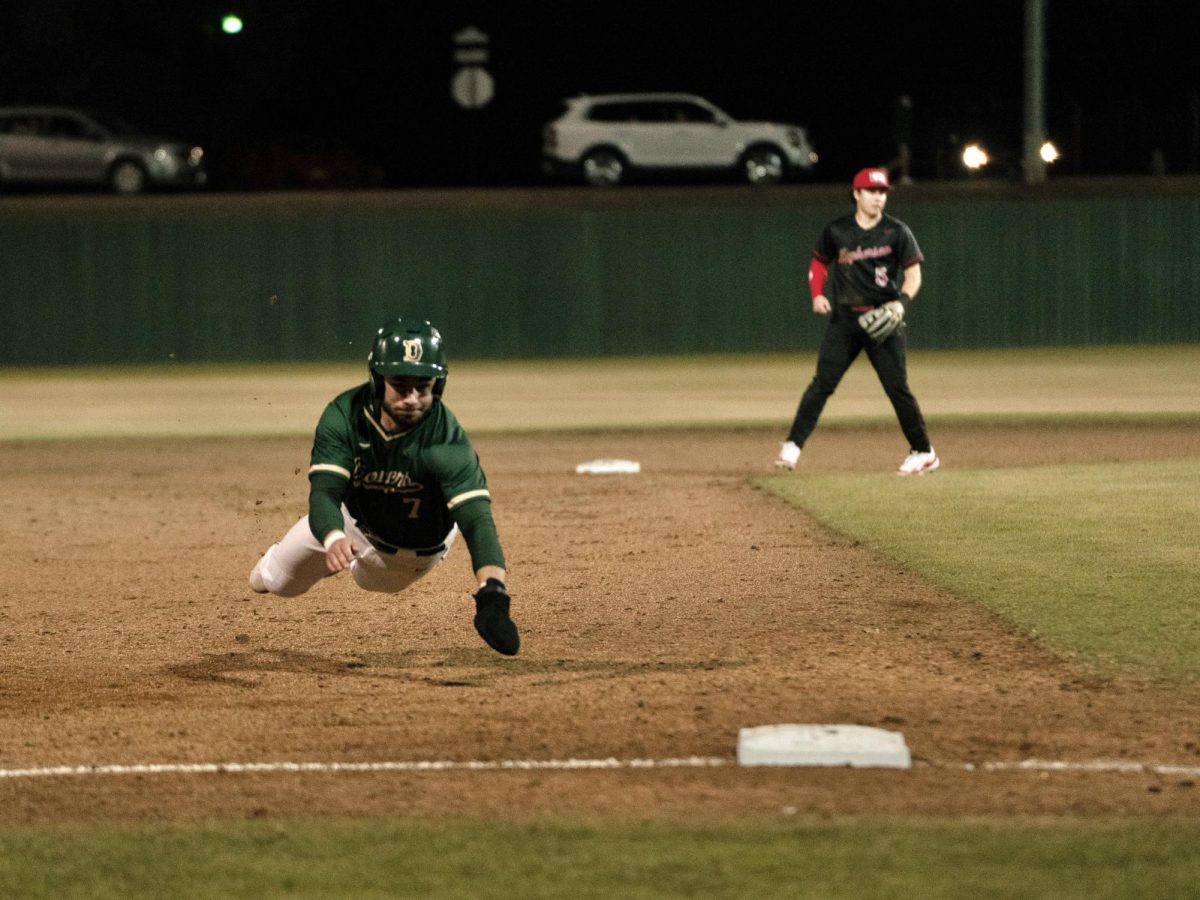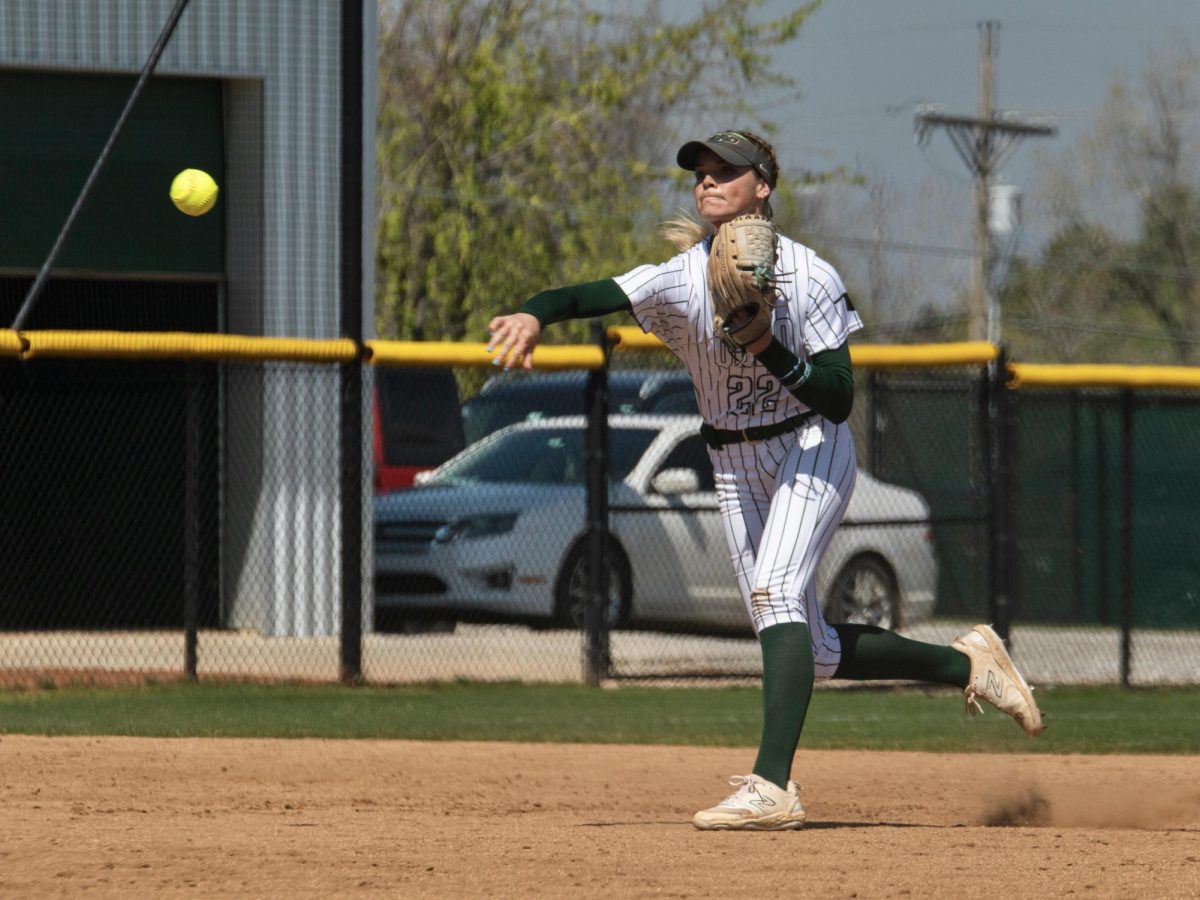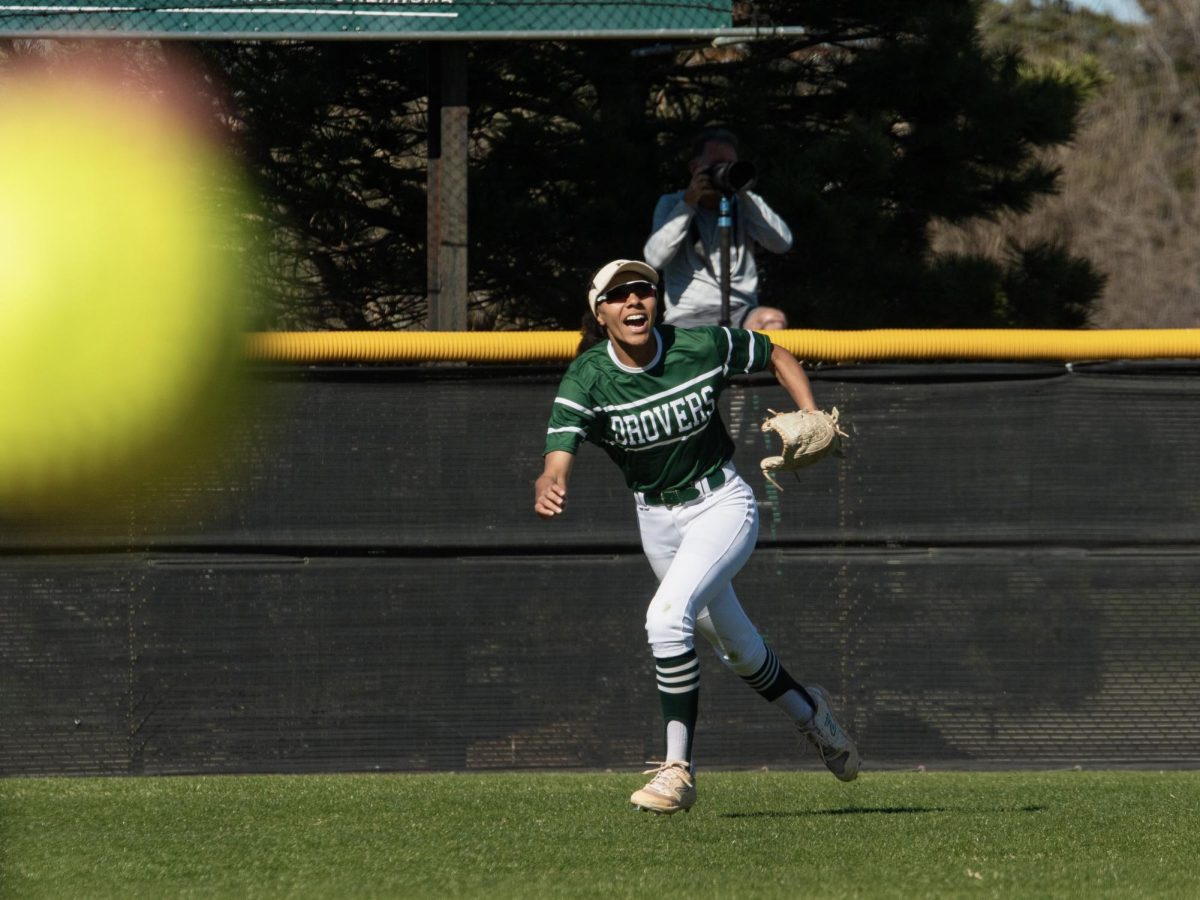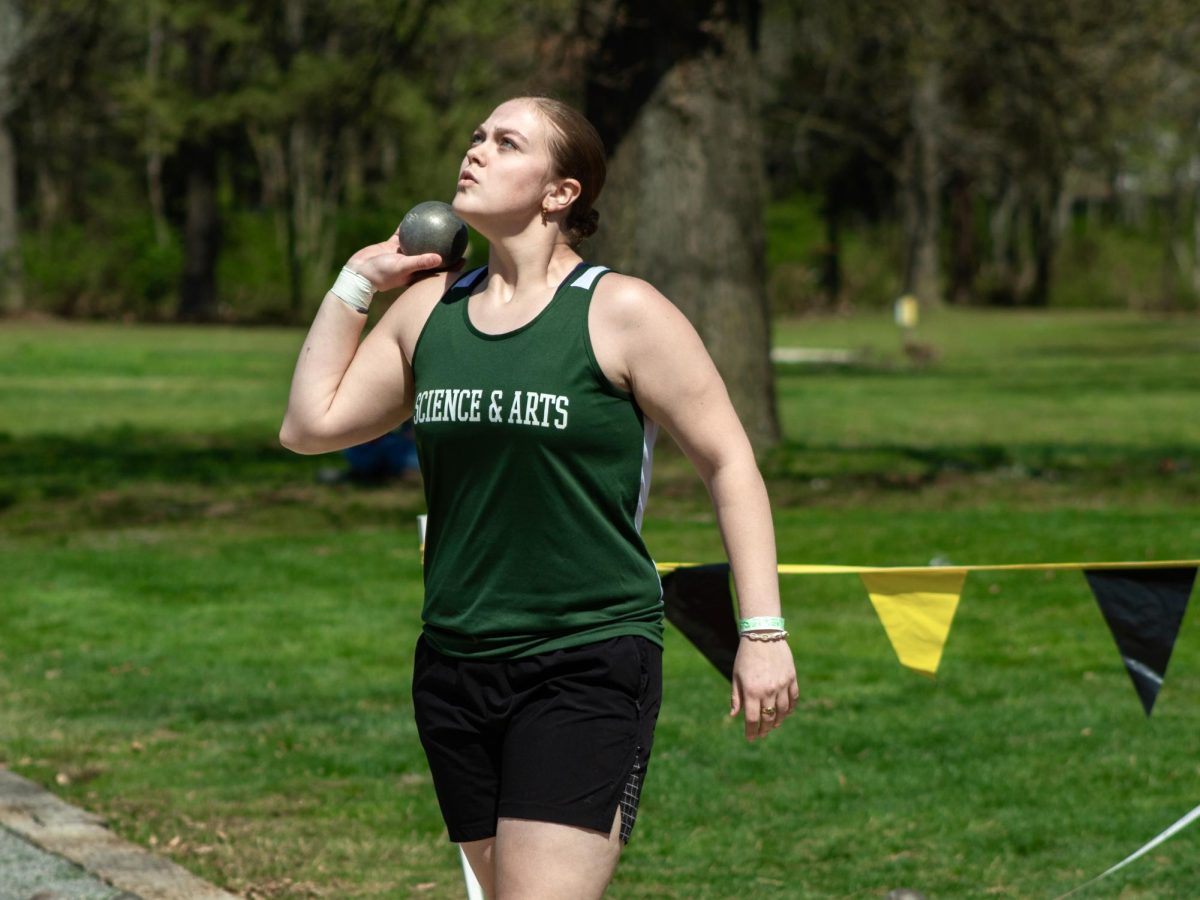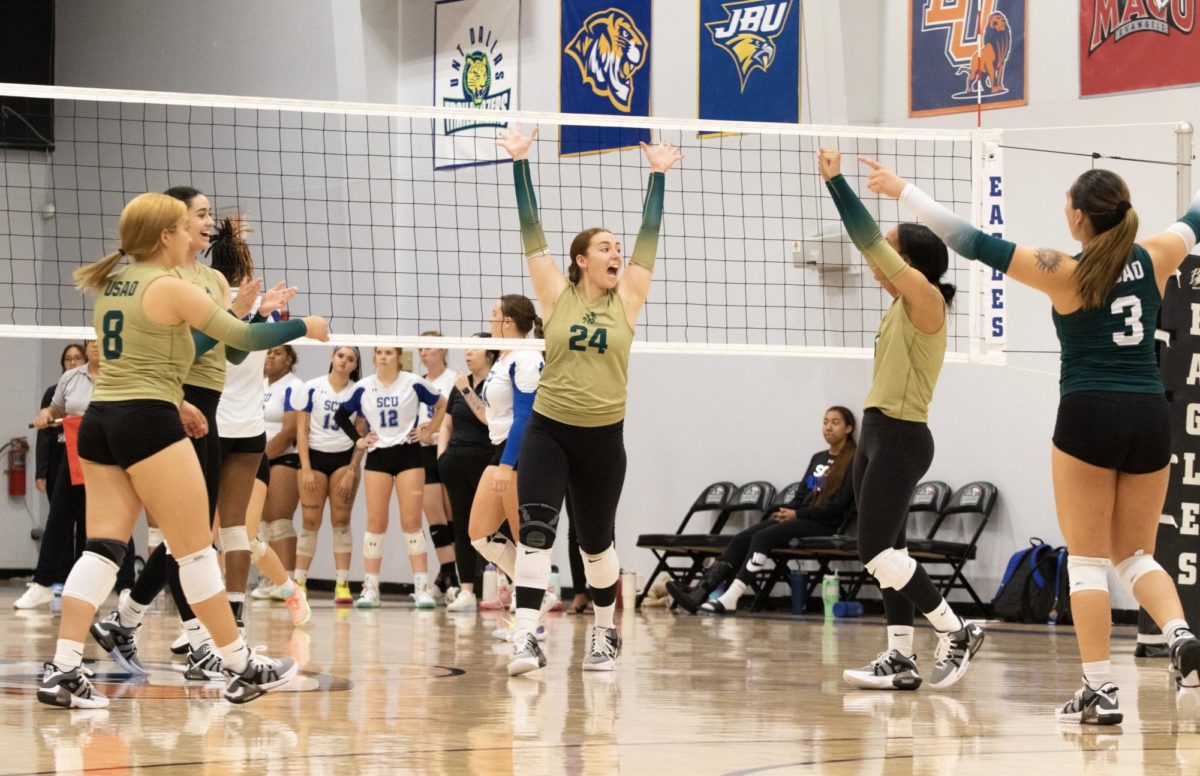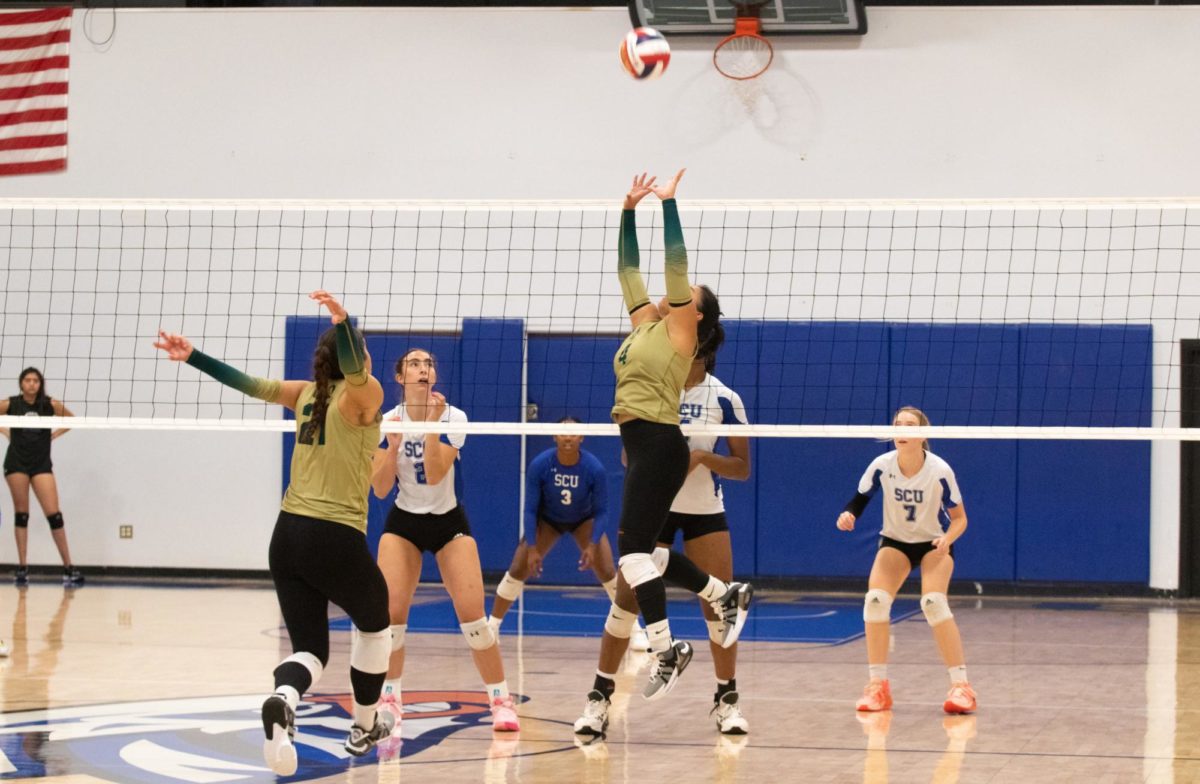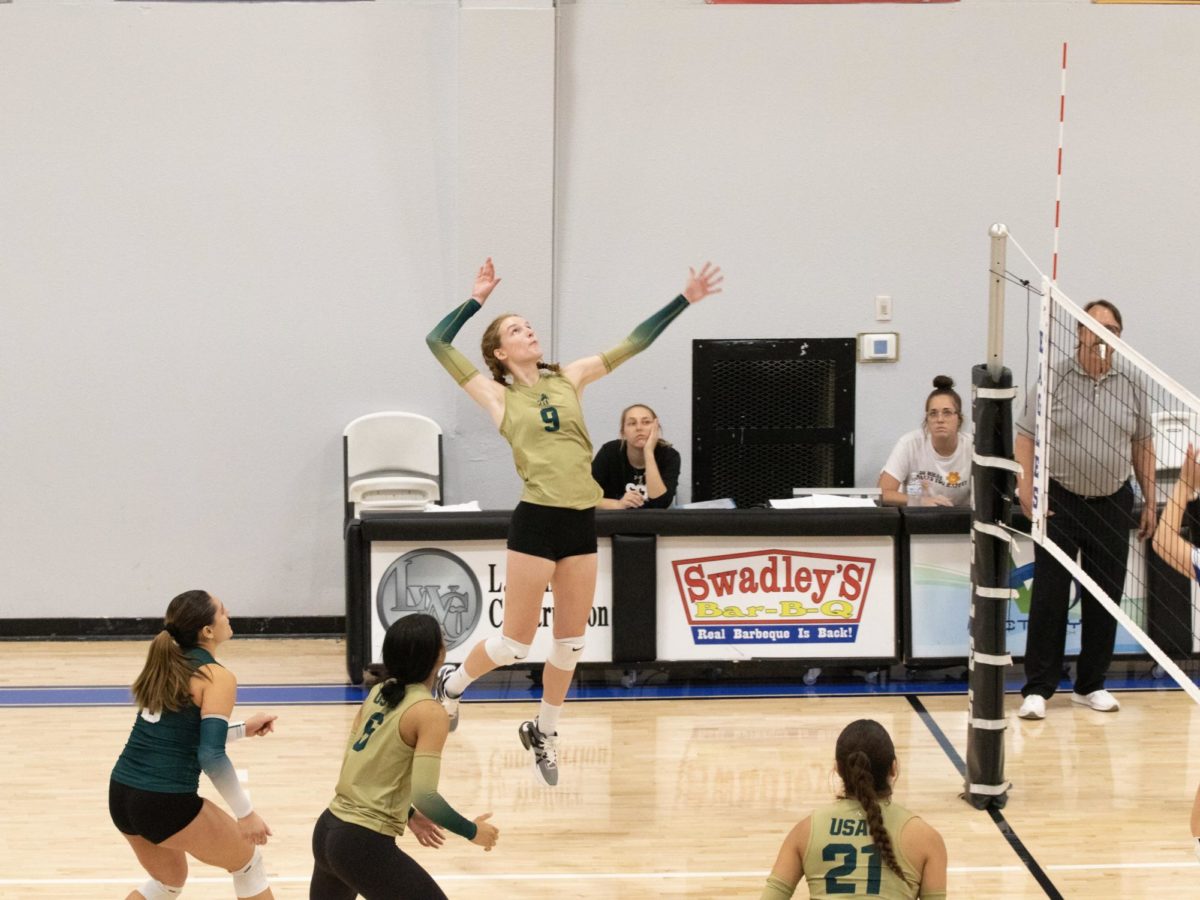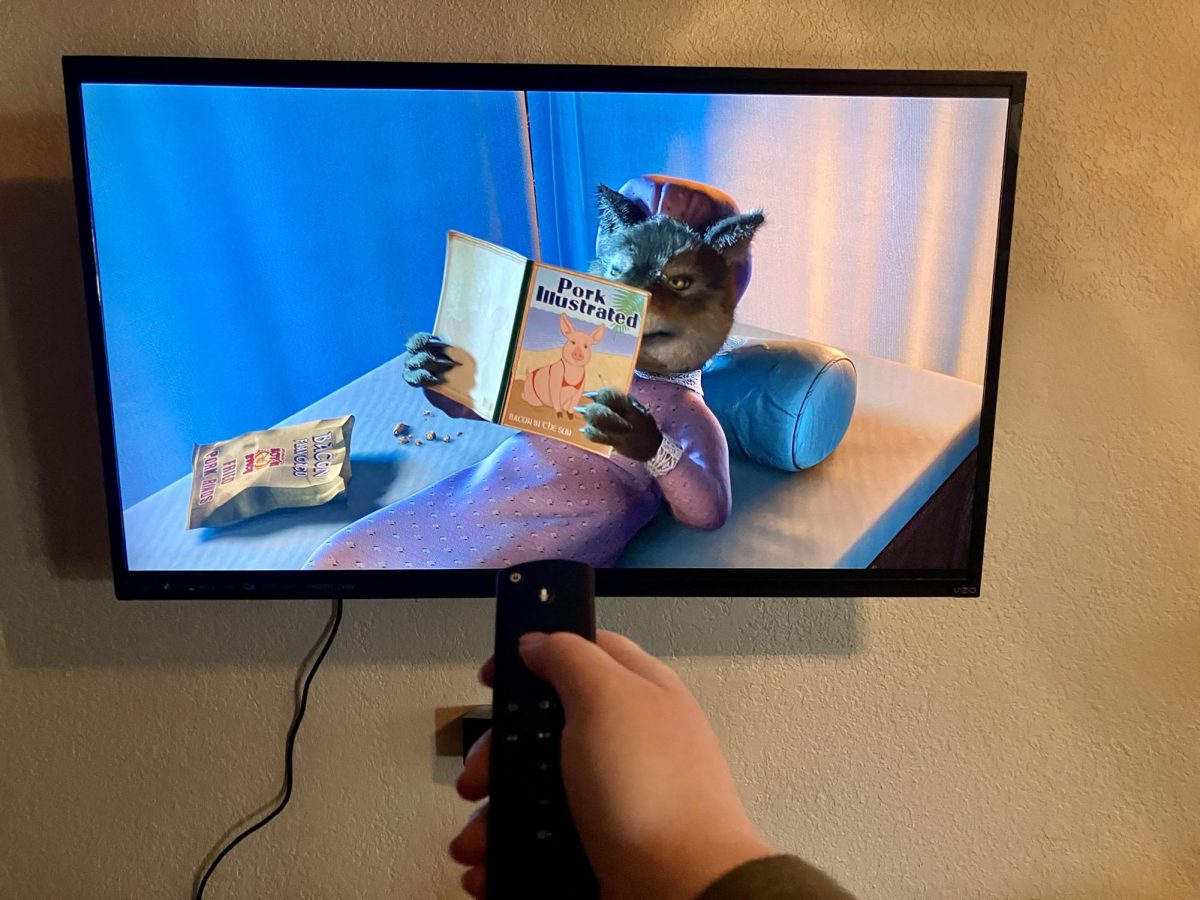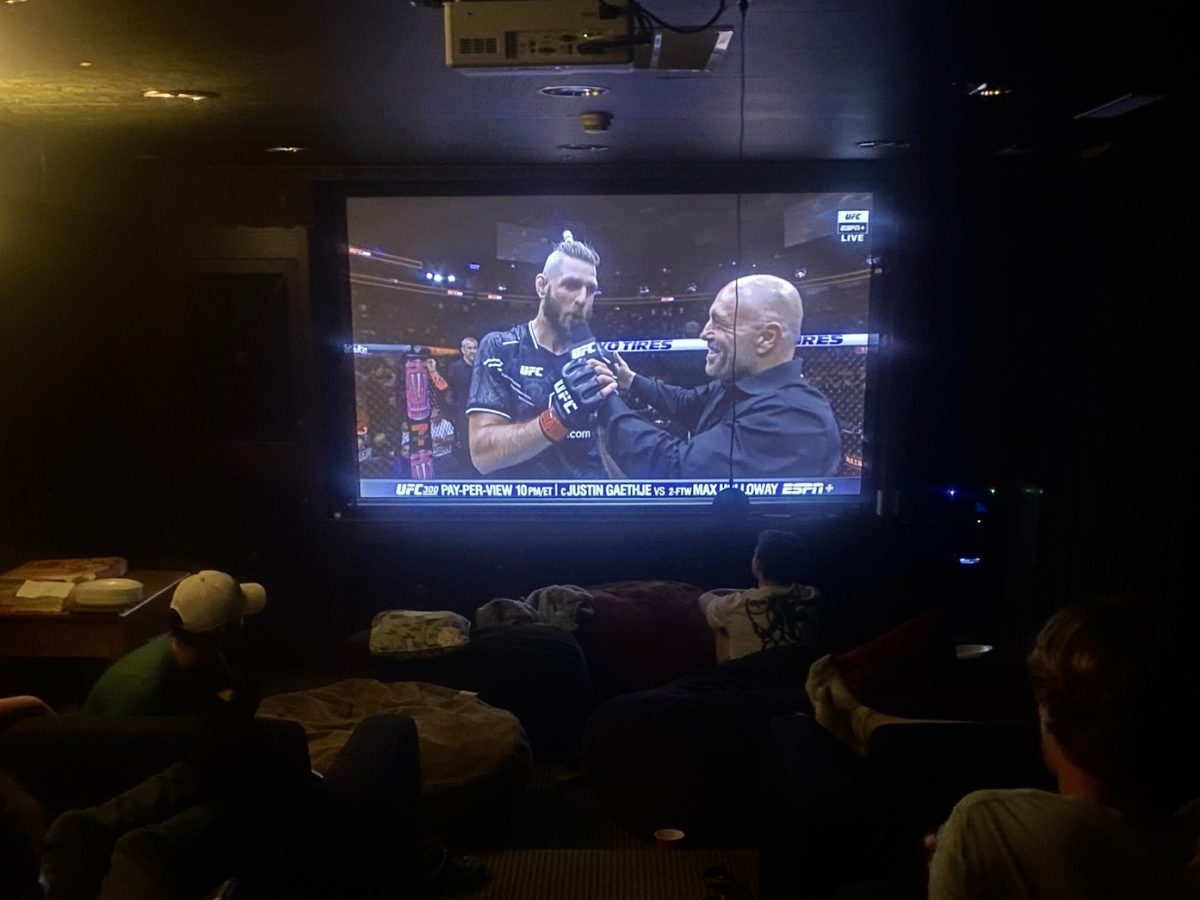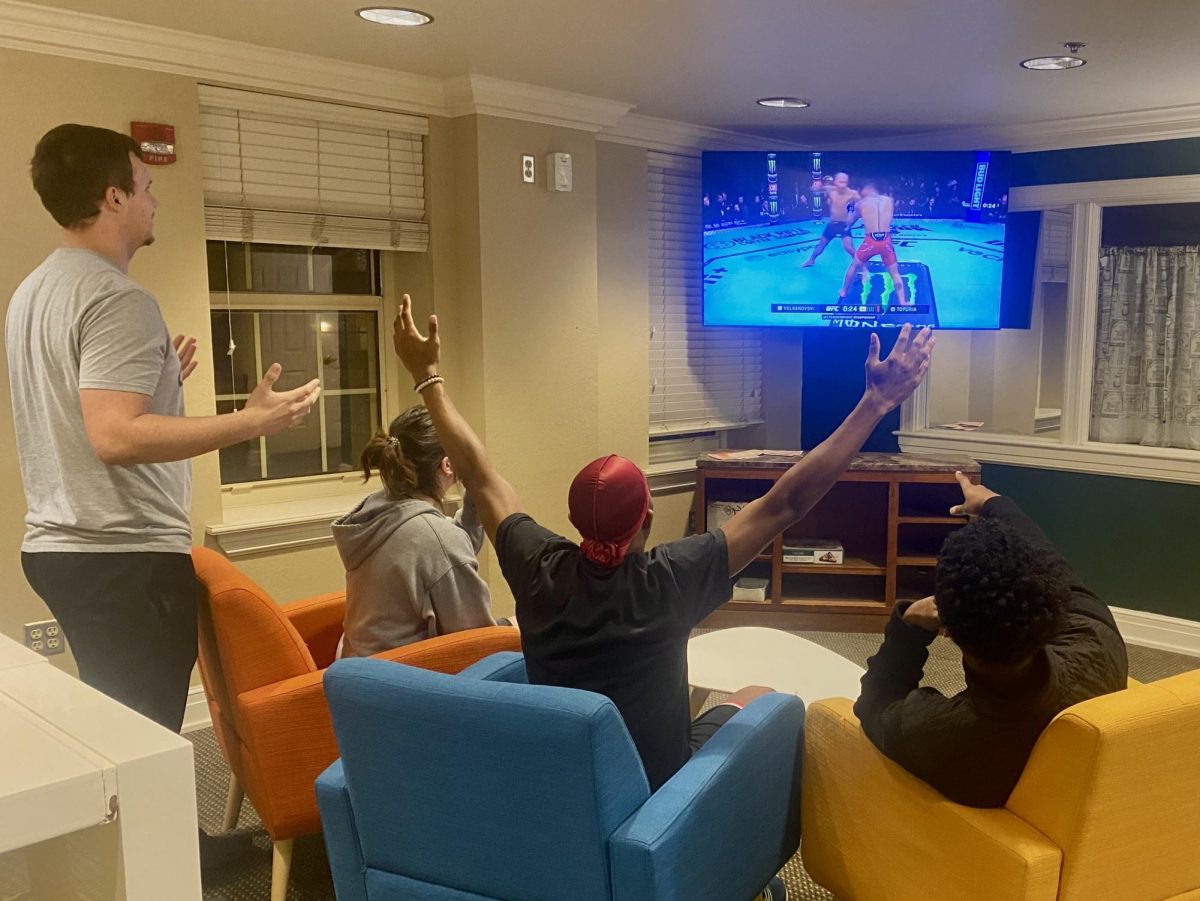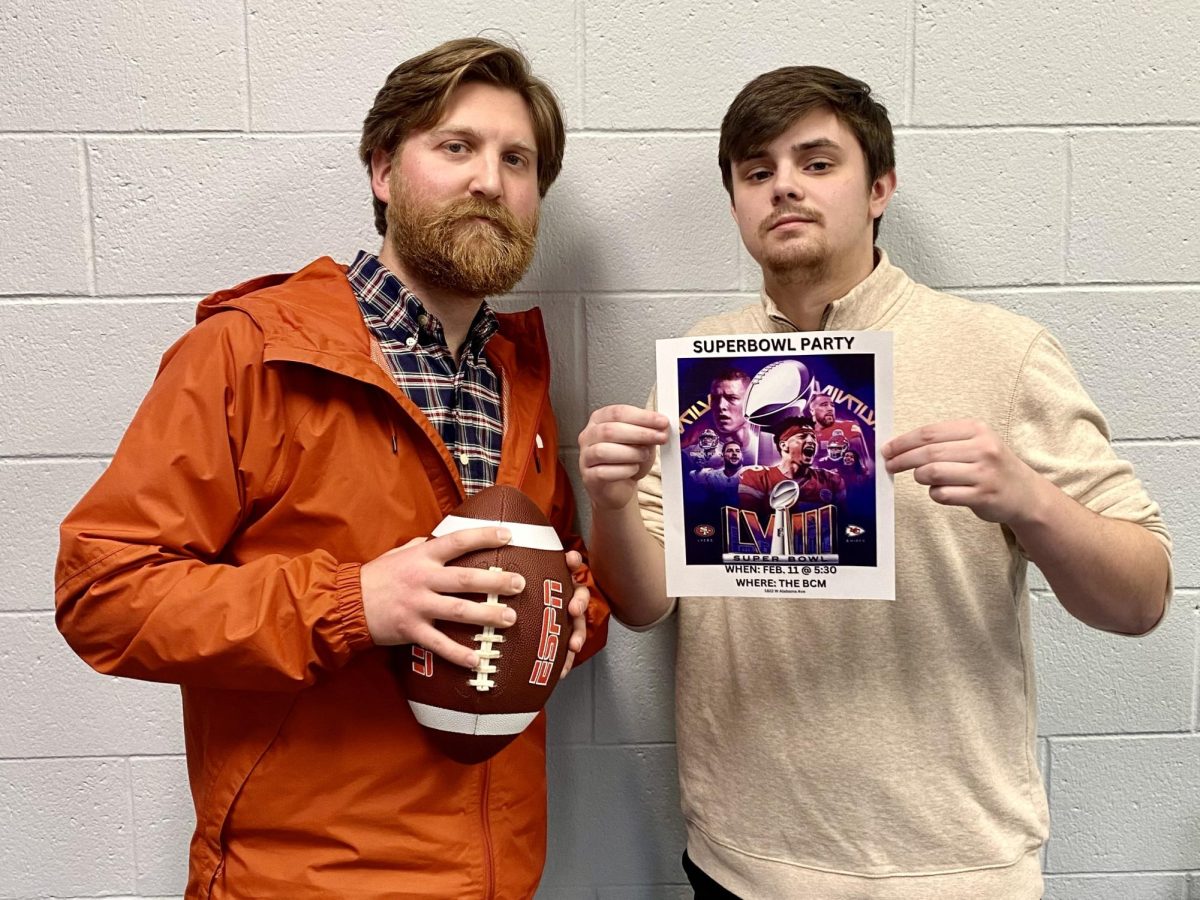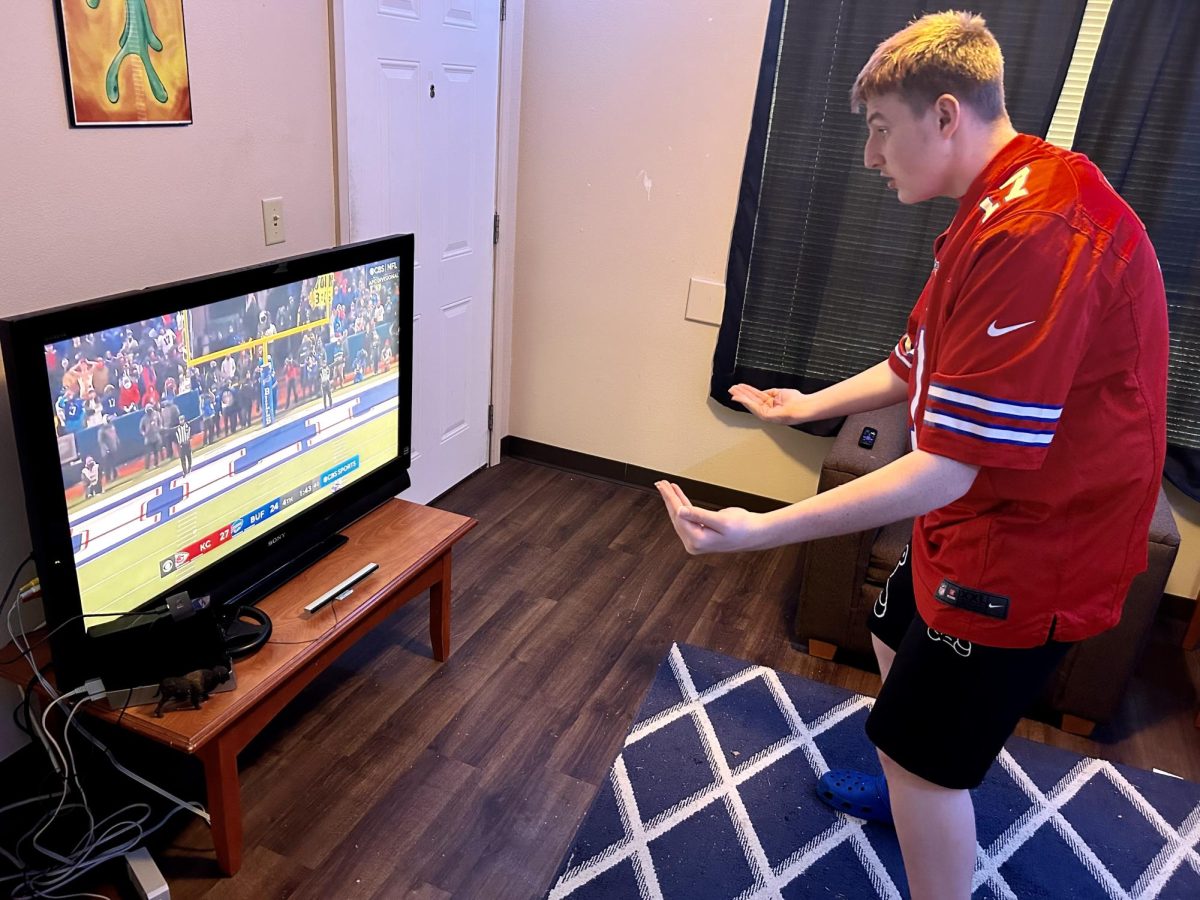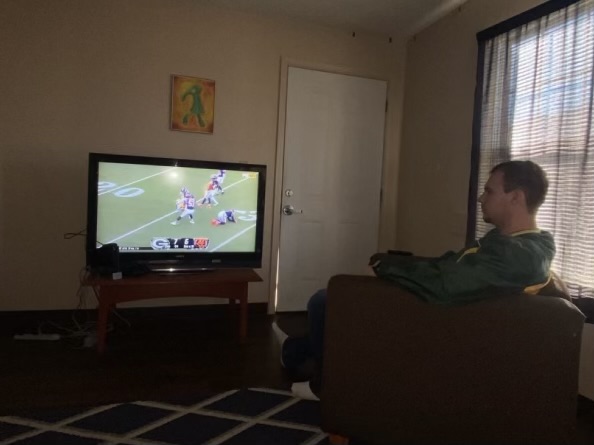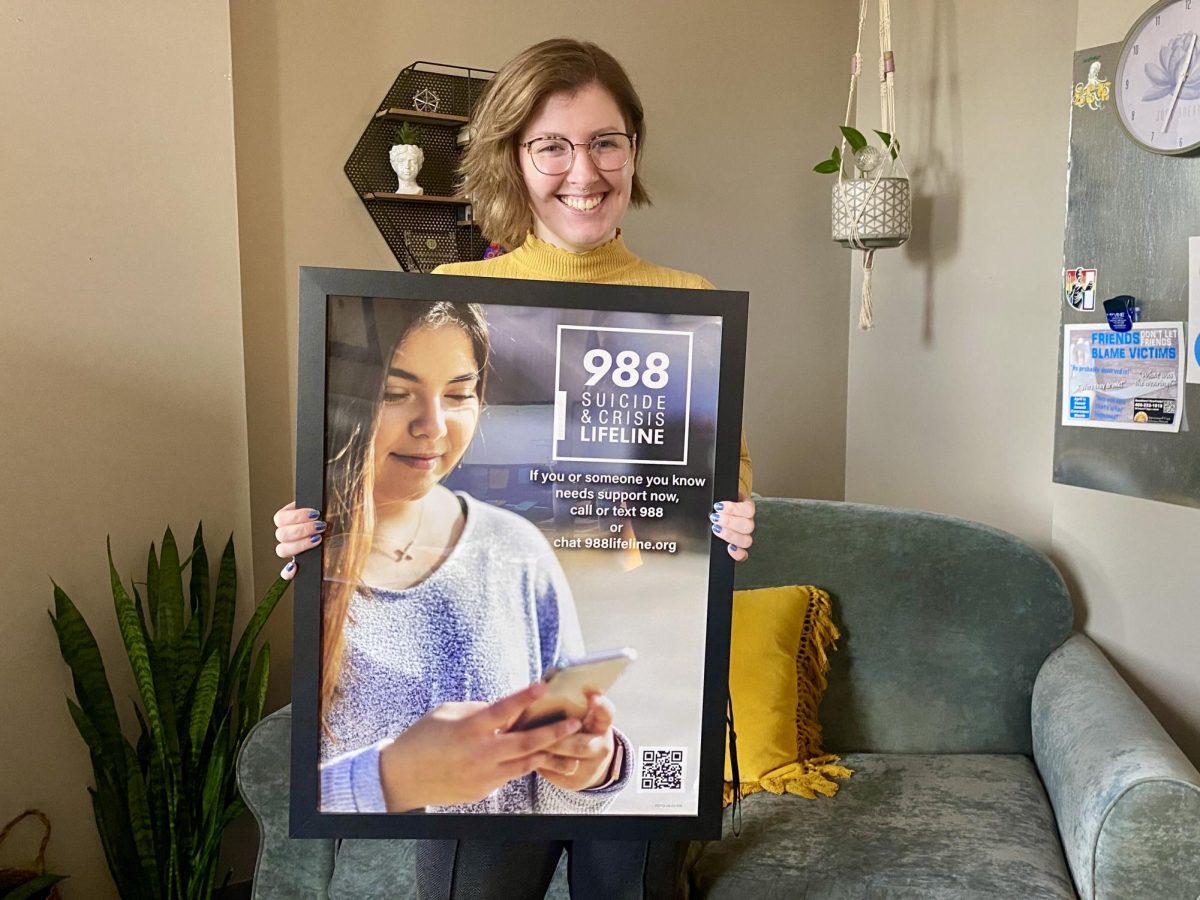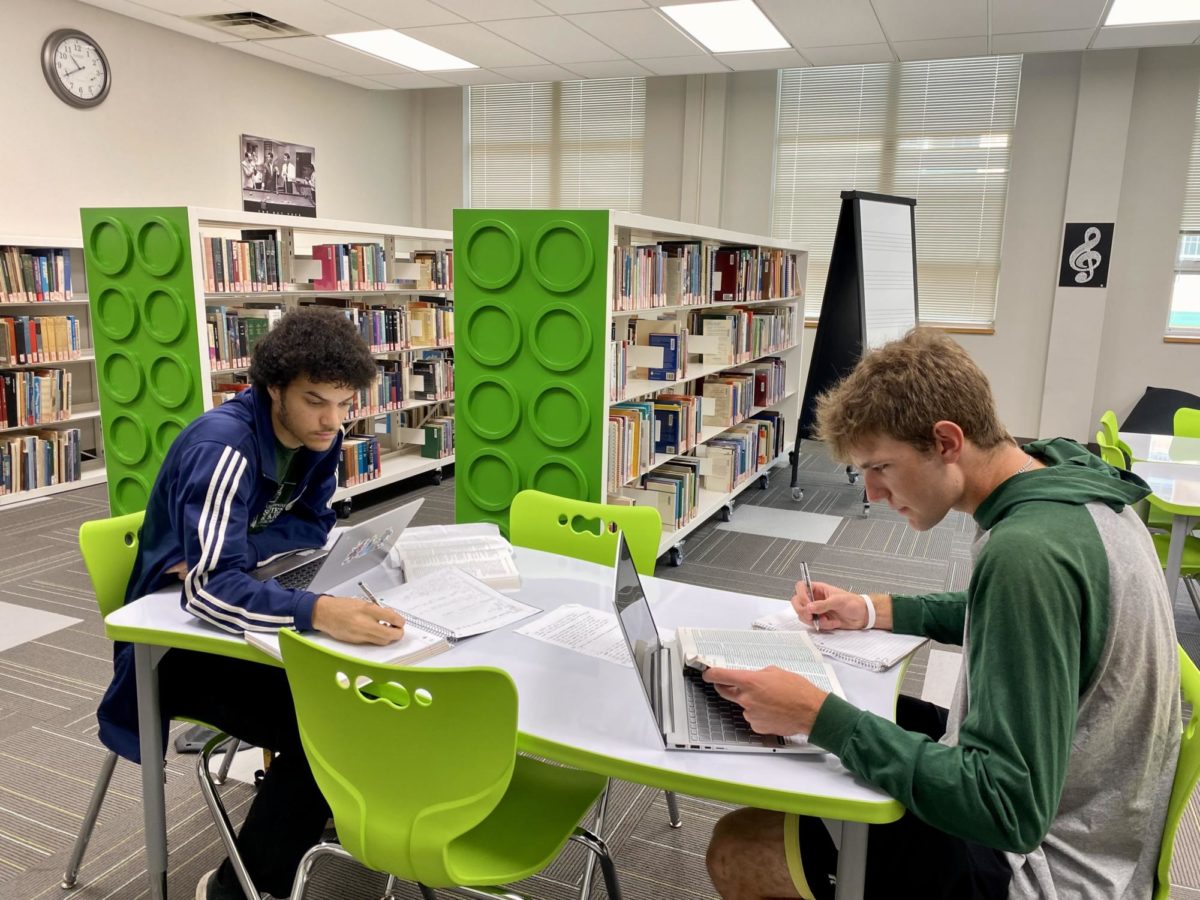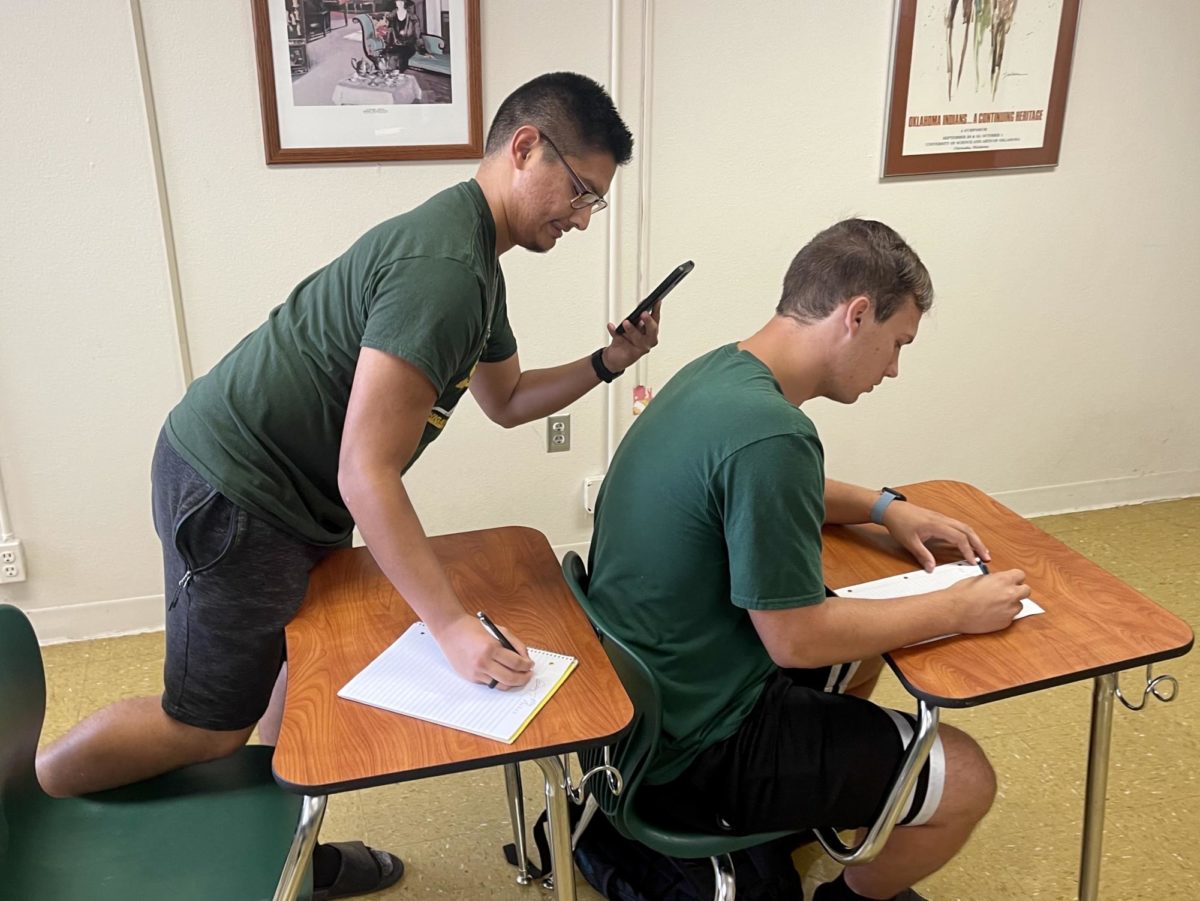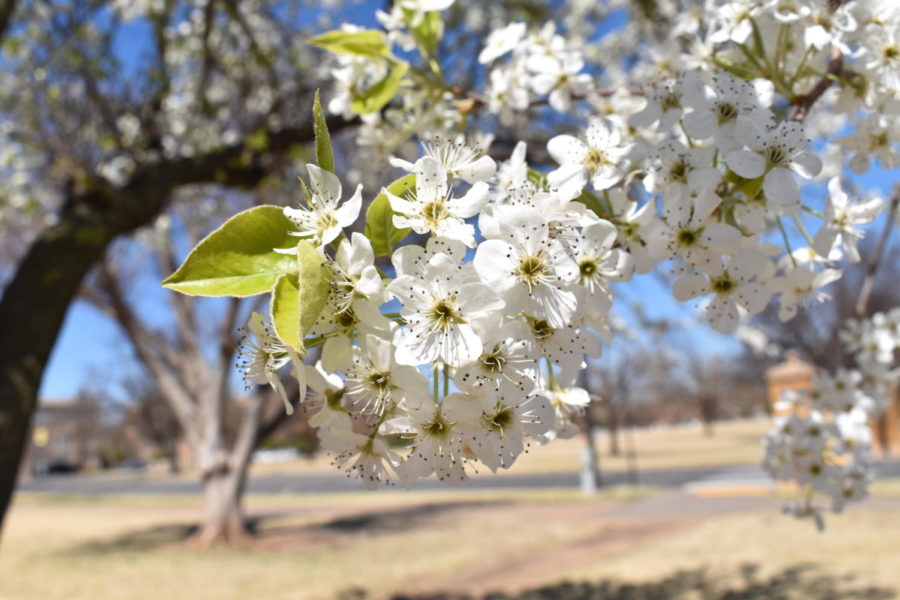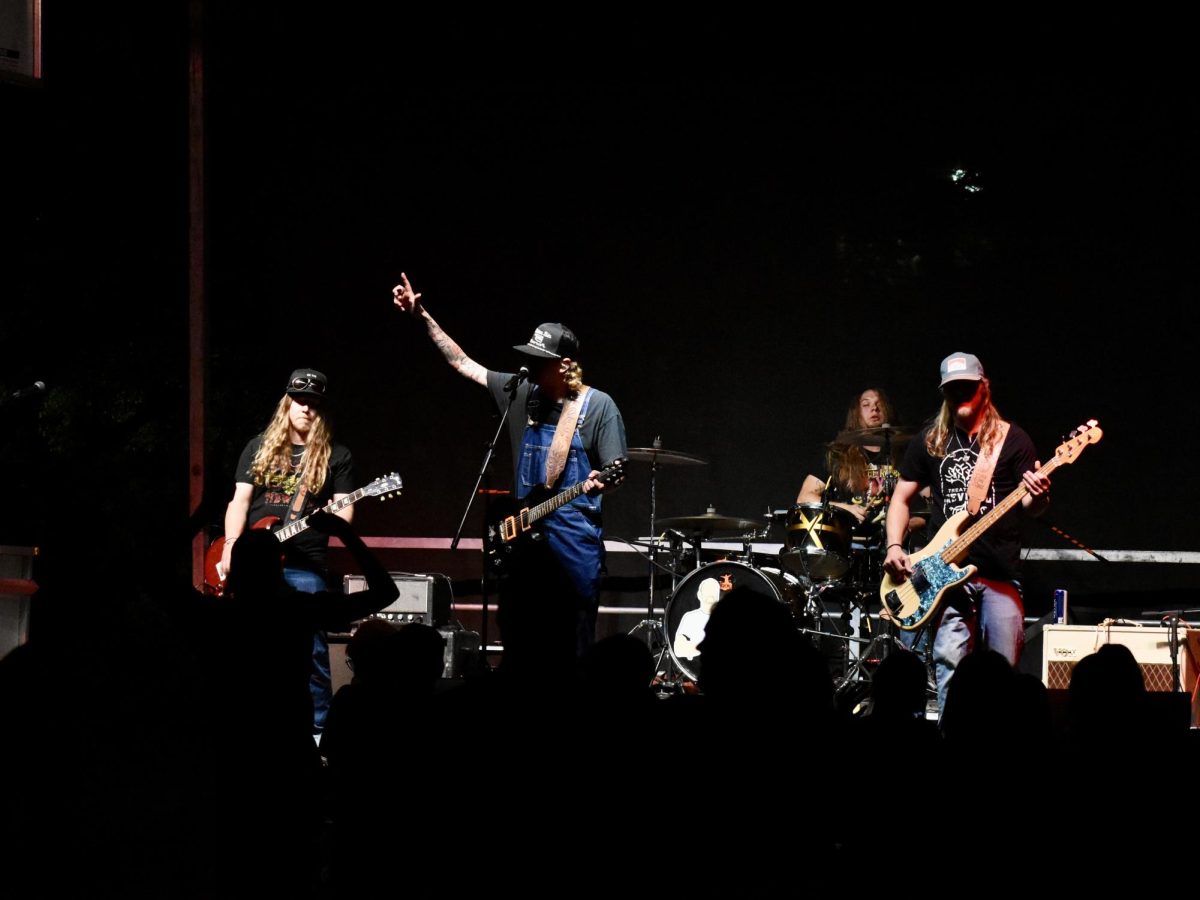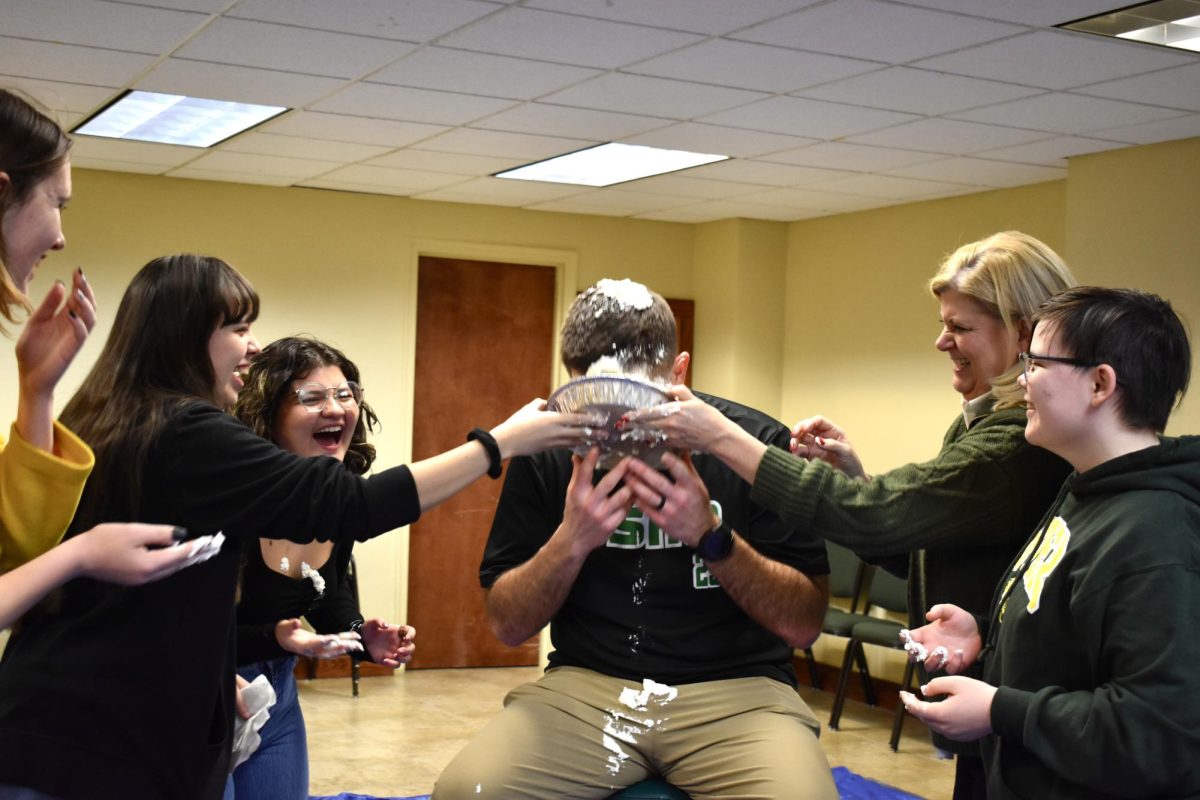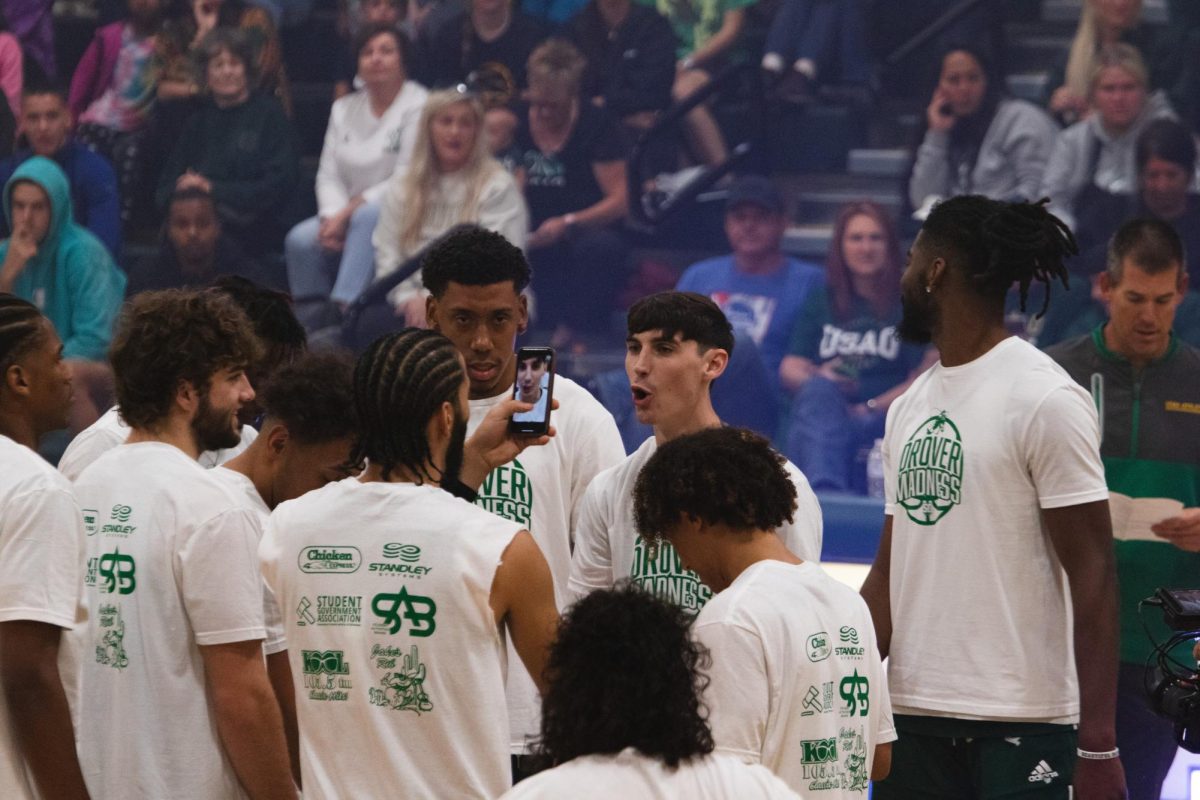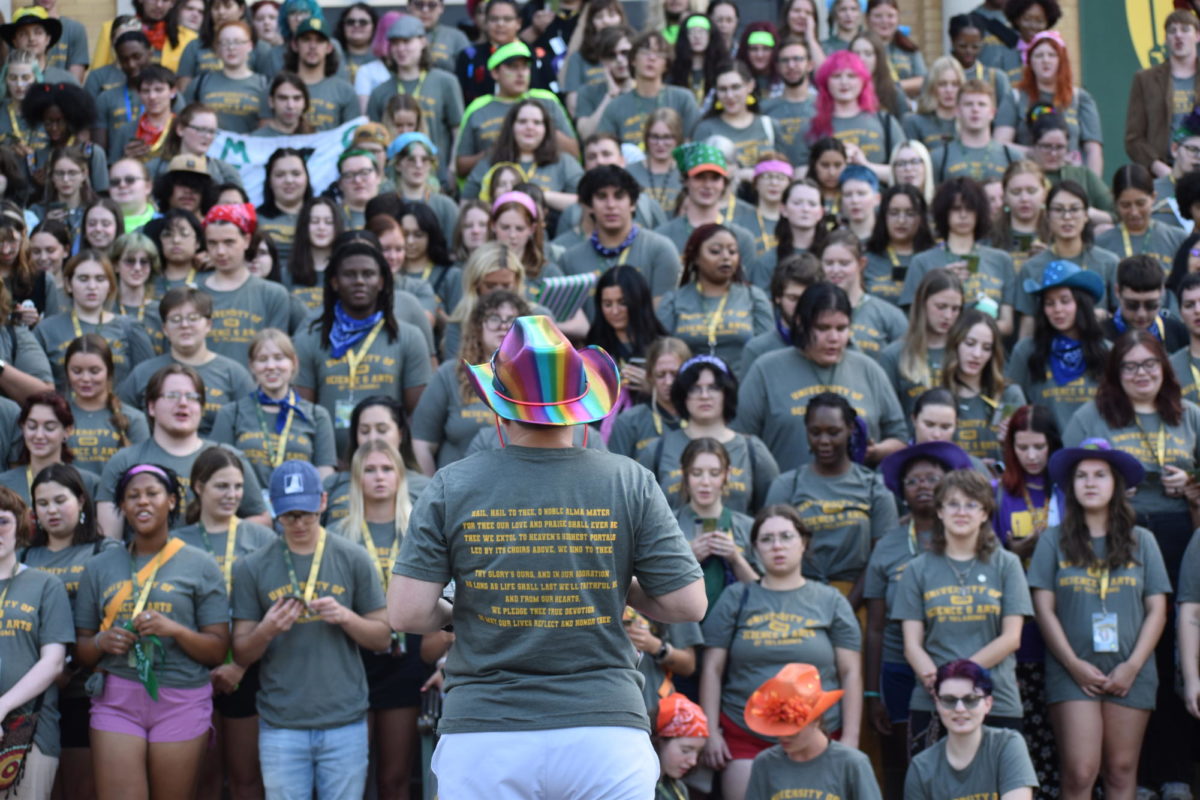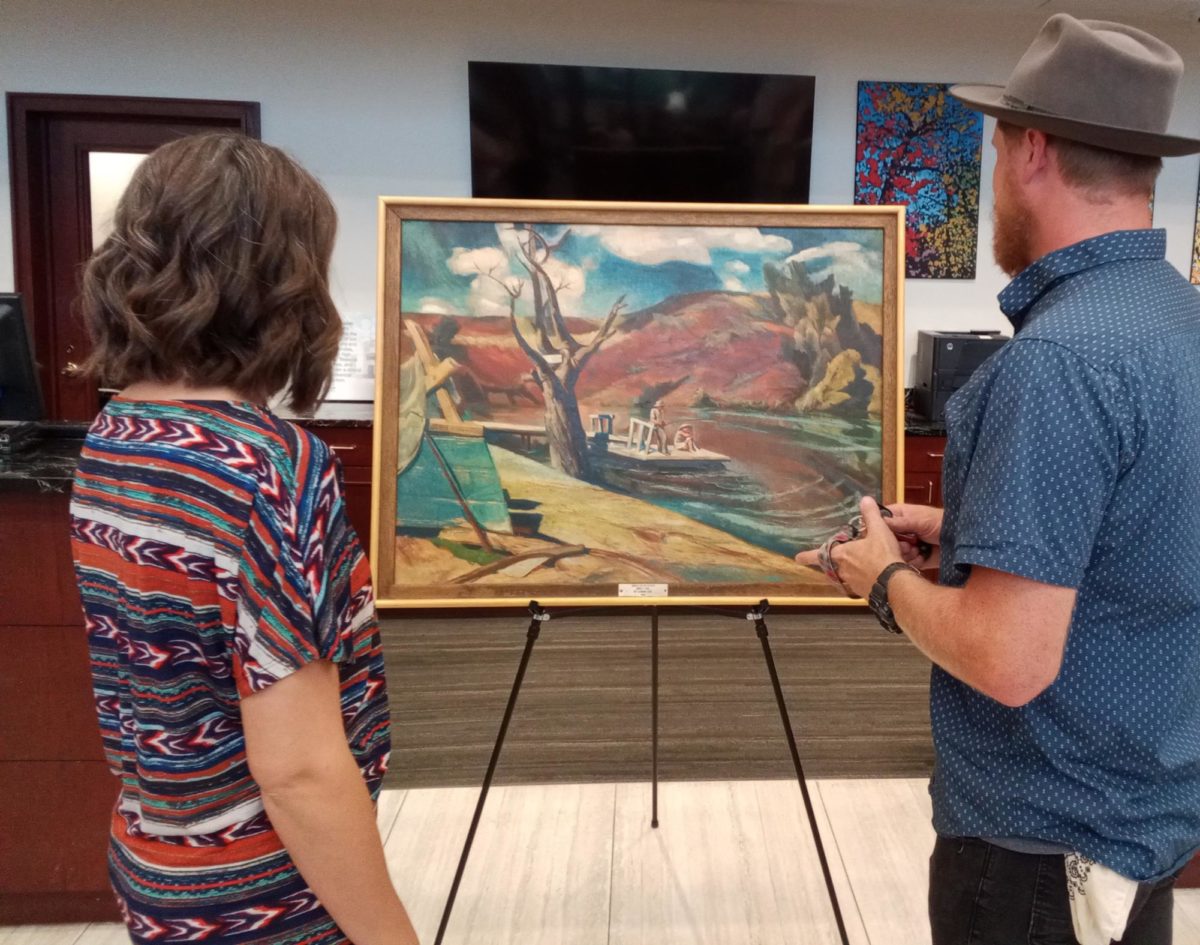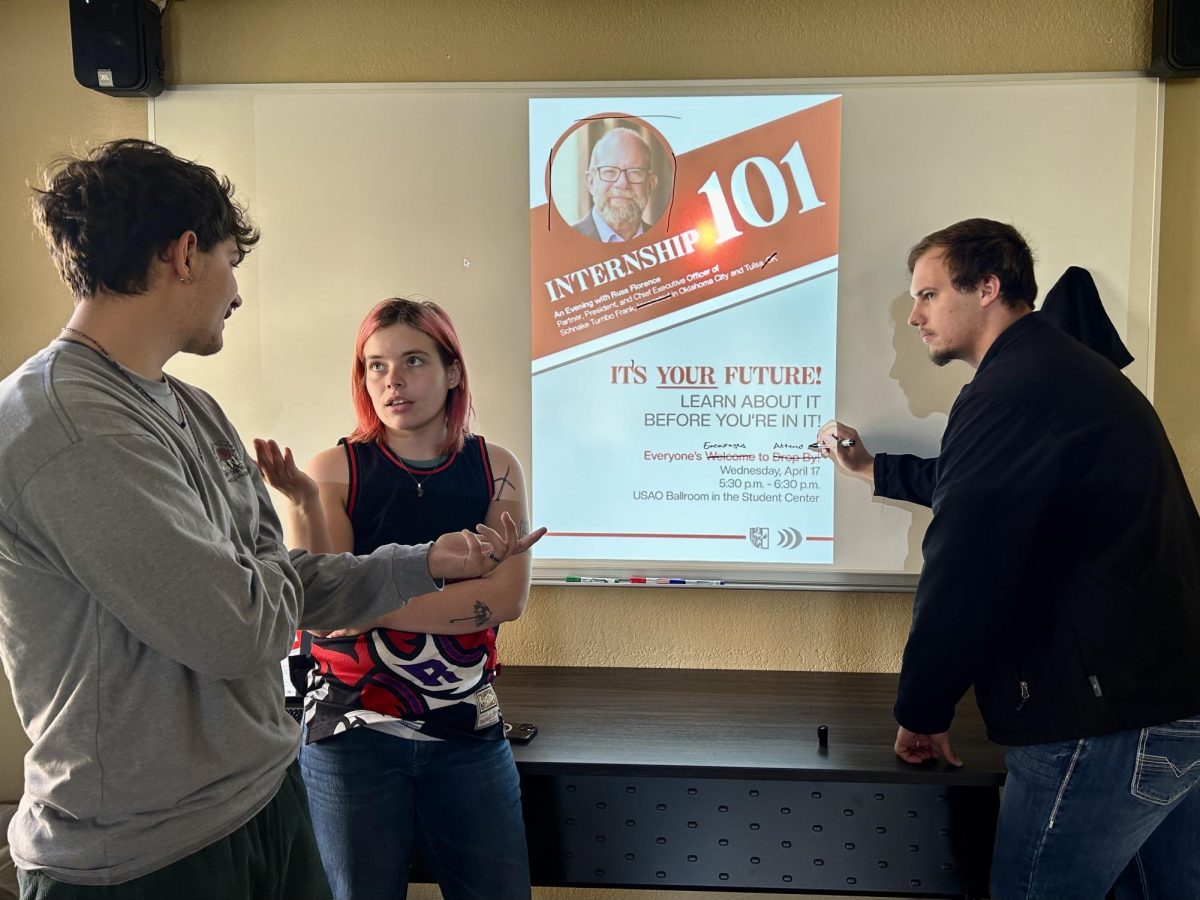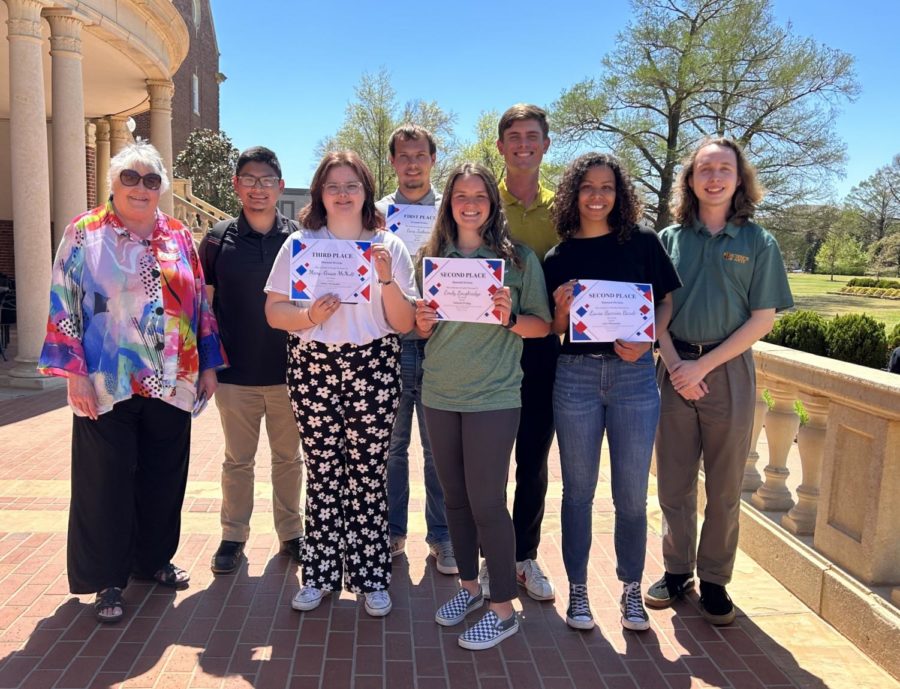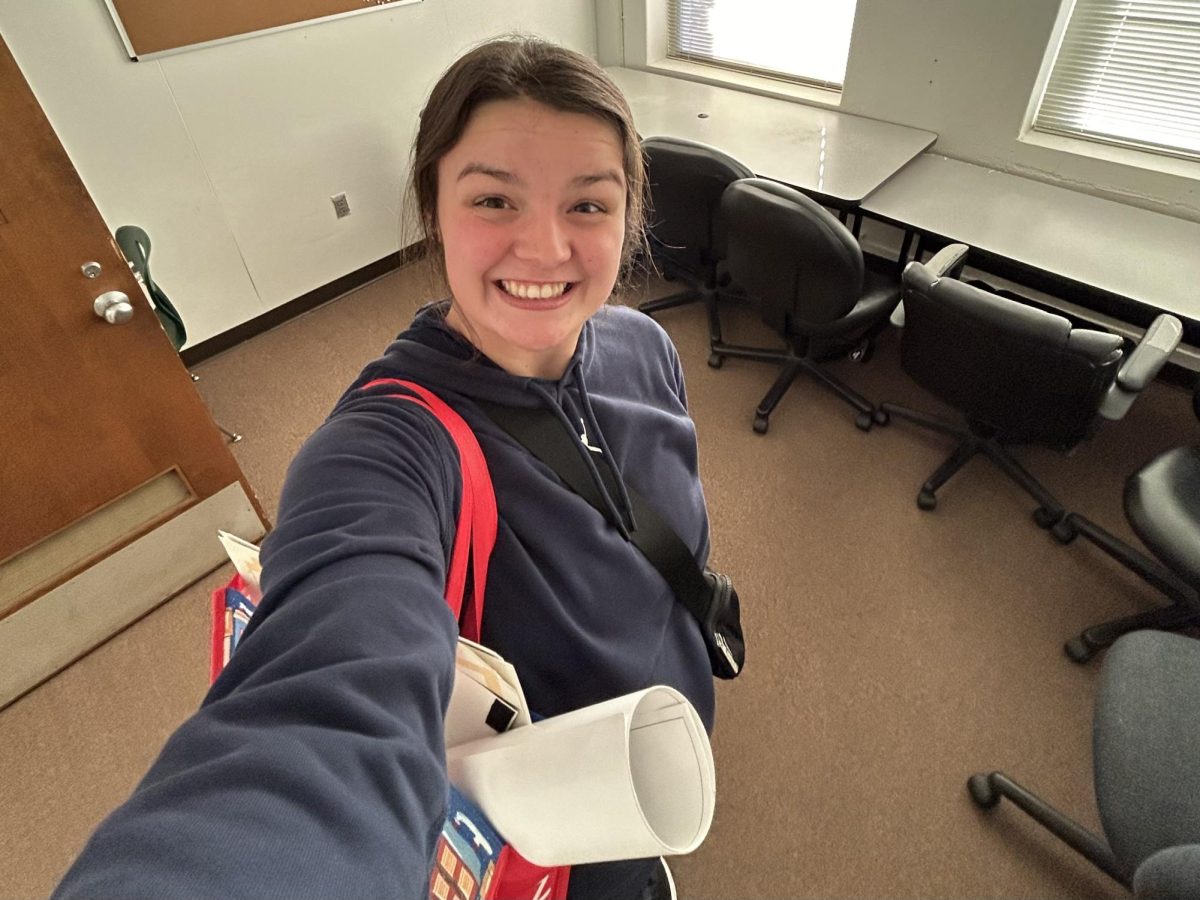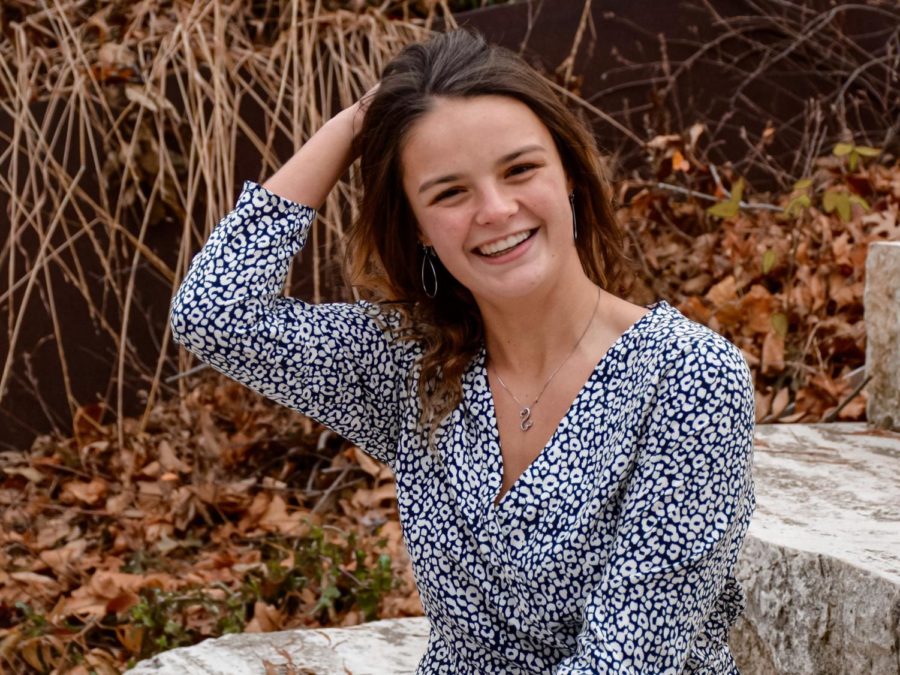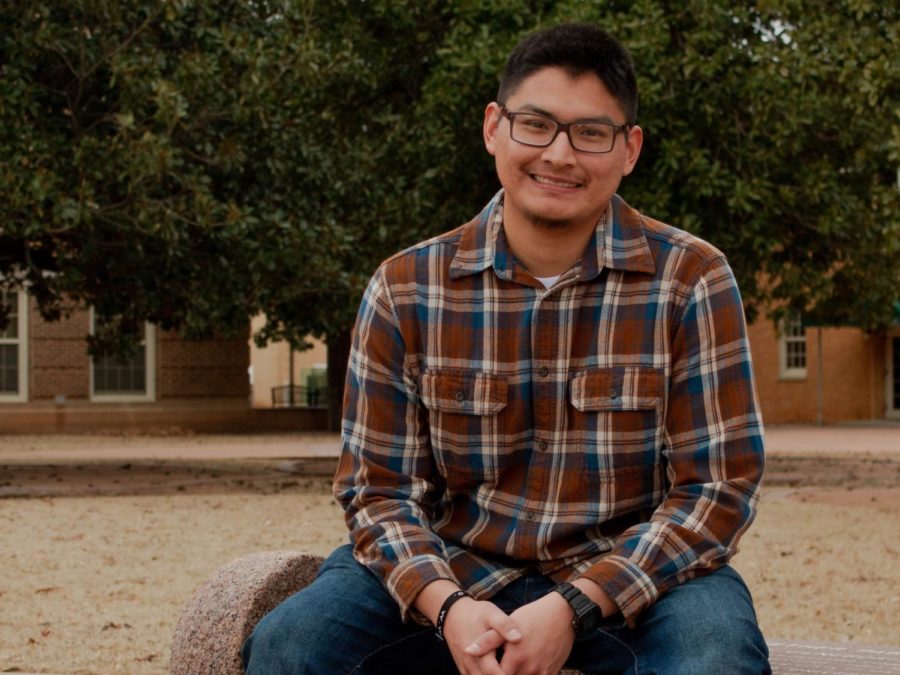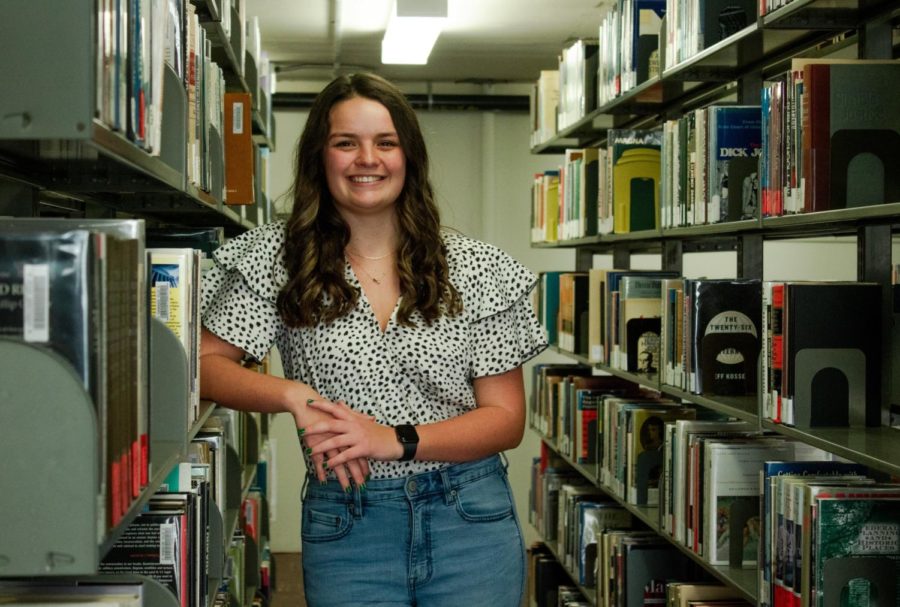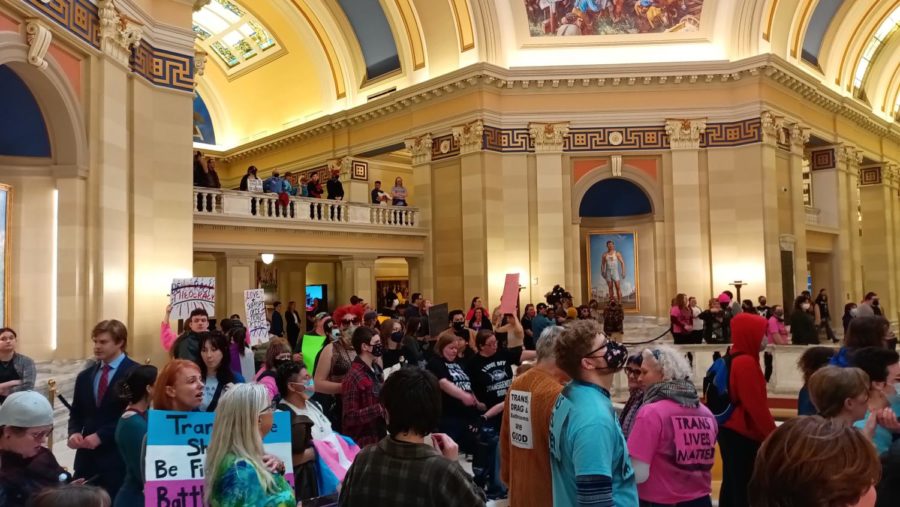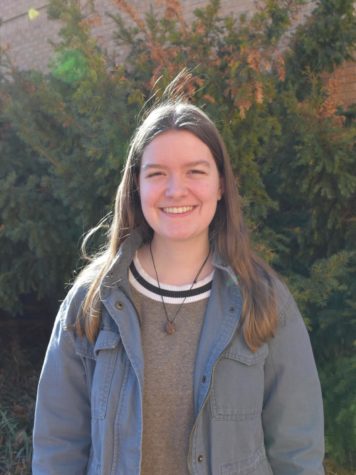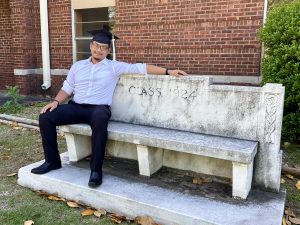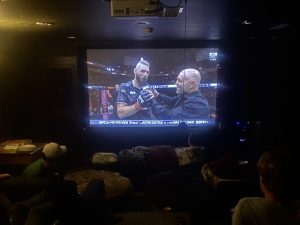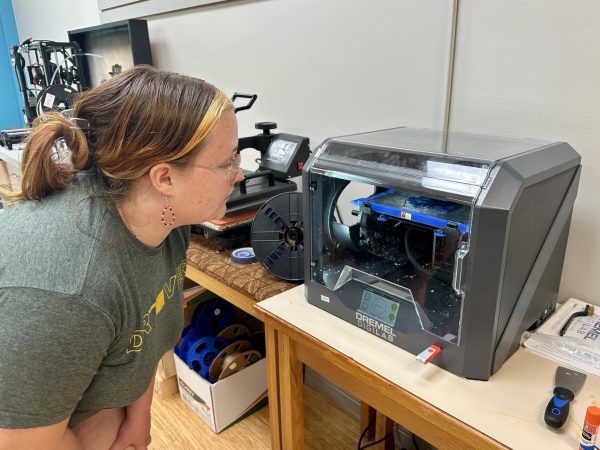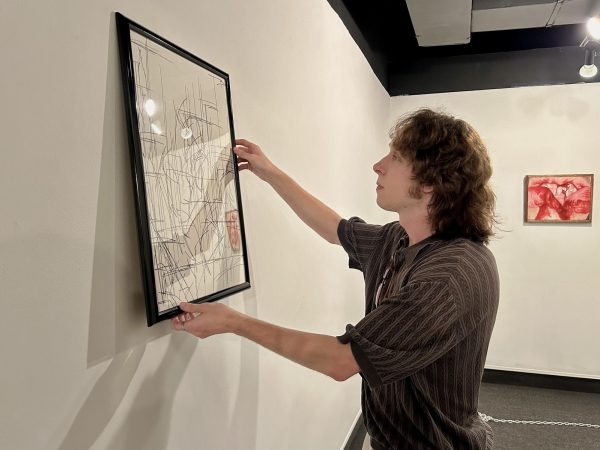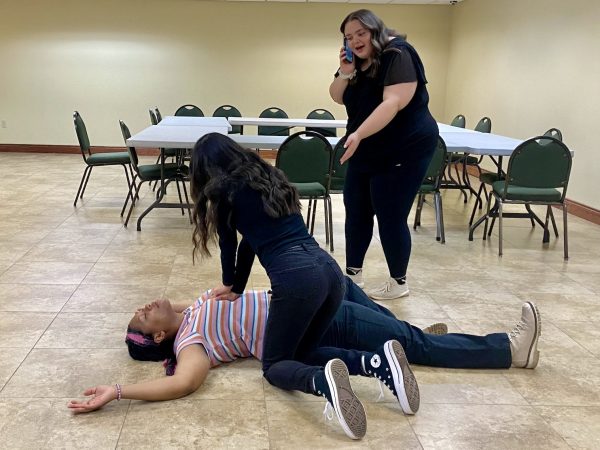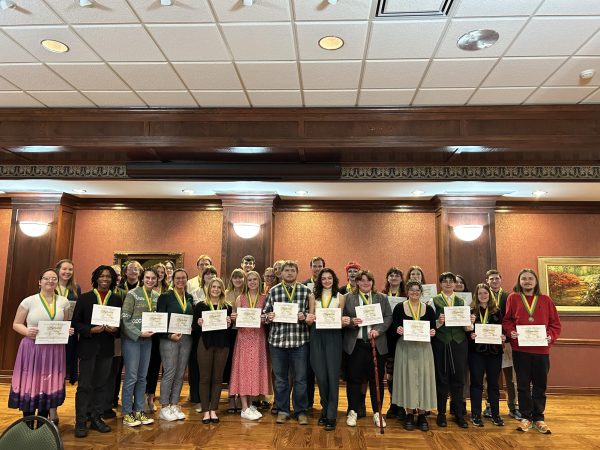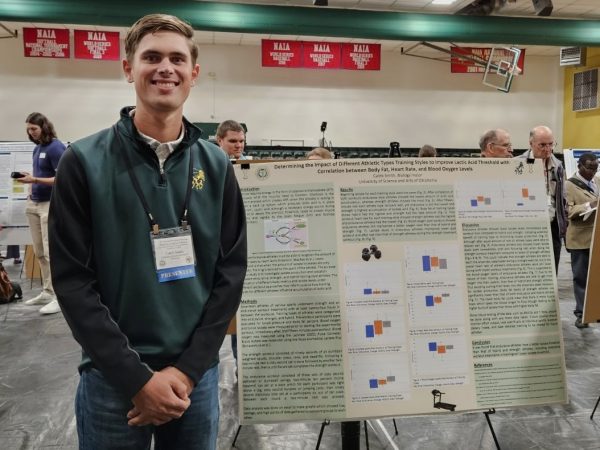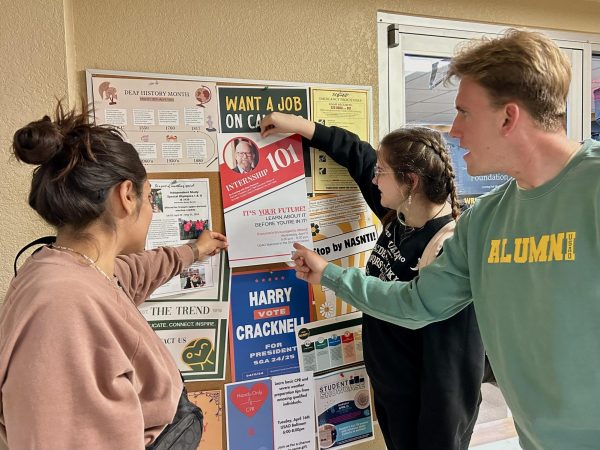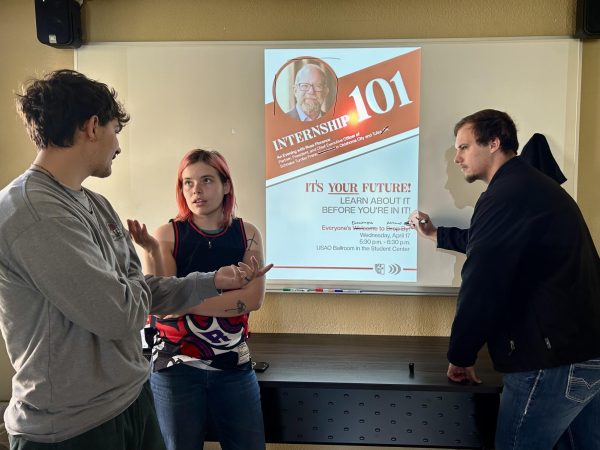PRISM Protests Millstone Act at the Capitol
USAO’s equality club PRISM ventured to the Capitol on Monday to learn more about the proposed bills dealing with trans healthcare.
February 7, 2023
PRISM, USAO’s equality club, participated in a rally at the Oklahoma State Capitol on February 6th to protest Oklahoma Senate Bill 129, otherwise known as the Millstone Act. The Millstone Act, if passed, will deny gender-affirming healthcare to youth and young adults by making it a felony for healthcare providers to give or refer gender transition services, including hormone therapy and gender-affirming surgeries, to anyone under the age of 26. PRISM joined with other organizations and entities, including Freedom Oklahoma and the Sunrise Distro Zine, in protesting this bill at the Capitol during its first reading. The protest began at 7:00 a.m. and continued into the afternoon.
The Millstone Act has received widespread criticism and opposition among members and allies of the LGBT+ community for the harm it would cause to young transgender people.
“This is going to seriously affect the healthcare of many individuals,” said Rhiannon Allen, a first-year fine arts major and member of PRISM. “Transgender young adults, people that should be able to make their own medical decisions, are being denied flat-out, and now it’s a crime to get your own healthcare and to be the person that you are. I hope [people] see how many people are against [the Millstone Act] and how seriously this can affect people. People that are transgender [at] the protest are seriously fighting for their own life.”
Marshall Ingram, a second-year fine arts major and co-president of PRISM, emphasized their desire for the protest at the Capitol to foster education and a sense of community. In addition to the rally making a public statement against the Millstone Act, they stated that the protest “is also more what we’ve been calling a community gathering, because there’s going to be a potluck, there’s music, there’s people [who] are just there to kind of communicate with other trans people with like minds so nobody feels like they’re alone.”
“As PRISM,” Ingram added, “we want more to educate our members, as well as [anyone] out there who might be interested. The biggest thing [we want to achieve] really is just education for everybody that attends and having that sense of community, because again, that’s like the biggest thing is having them not feel alone.”
Ingram recognized that the protest may not significantly impact the lawmakers or the outcome of the bill but stated “it does make a difference no matter what anybody says. Even if us being there doesn’t get the lawmakers’ eyes on us and such, it still shows something – that we were there and that it is important to us.”
Lastly, Ingram emphasized that “the biggest thing especially that PRISM’s wanting people to know is to stay strong. Which you’ll hear everybody say, but [what] the Millstone Act does is take away safe trans healthcare, because there will always be those options out there that just won’t be safe. Taking away the safe [options] just makes it to where it’s more harmful to trans people. So, the biggest thing is to keep your heads up and then try to get healthcare now while you can so you can try to start that journey.”
Anastasia Dulle is a third-year Sociology major at the University of Science and Arts of Oklahoma.

